Researchers
Dr Georgios Petropoulos
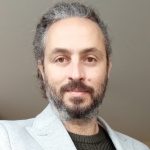
Georgios Petropoulos is a postdoctoral researcher in University of Galway involved in the “Critical Thinking in Communities of Inquiry” research project. This project uses the Community of Philosophical Inquiry framework to explore attitudes of data scientists and AI professionals toward the ethical and societal dimensions of data science and artificial intelligence. The project also aims at researching new ways of fostering constructive dialogue between the general public and scientists at the Insight SFI Research Centre for Data Analytics. Georgios Petropoulos has many years of experience of facilitating and researching Communities of Philosophical Inquiry with diverse groups of people. His broader research interests include public philosophy, philosophy of education (with an emphasis on interactive and dialogic pedagogies), phenomenology (classical, applied, and critical), and ancient philosophy. Prior to joining the University of Galway, he was a lecturer at Newcastle University, a teaching fellow at University College Dublin, and a research fellow at the UCD Centre for Ethics in Public Life.
Contact:
E-mail: Georgios.Petropoulos@universityofgalway.ie
Dr Verena Platzgummer
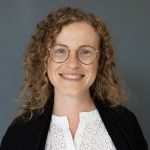
Postdoctoral Researcher on the GAELFAM project
Verena Platzgummer earned her PhD in linguistics from the University of Vienna in 2021. In her research, she takes a critical sociolinguistic approach to linguistic repertoires, language ideologies and language policies, addressing the complexity of historical minority spaces in the light of more recent immigration. Before joining the University of Galway, Verena Platzgummer worked as a doctoral and post-doctoral researcher at Eurac Research in Bolzano | Bozen. Her research there has focused on language and social difference in the officially trilingual Italian province of South Tyrol, where she has studied subject positionings and language ideologies in language-biographical interviews with adolescents and conducted a sociolinguistic ethnography of a linguistically diverse but institutionally German-language preschool.
Verena Platzgummer now works as a Postdoctoral Researcher in the project ‘Gaeltacht Families and Multilingualism’ (‘GAELFAM’). The project is centered on families living in Gaeltacht areas where at least one of the primary caregivers speaks a language other than Irish or English in the home. GAELFAM uses ethnographic methods— including ethnographies of communities and schools, interviews, and case studies —to better understand how multilingual families in the Gaeltacht shape their family language policies. These insights in turn will contribute to policy and practice in an increasingly multilingual Ireland and will shape future research on family language policy and on minoritised languages and speakers.
Contact:
E-mail: verena.platzgummer@universityofgalway.ie
Dr Pádraig Fhia Ó Mathúna

IRC Government of Ireland Postdoctoral Research Fellow
Project: ‘Cowboys, Colonialism and Ceol Tíre: Consuming the American West in Ireland since 1922’
The mass consumption and reception of the popular culture of the American West began in Ireland almost simultaneously with its rise in the US during the mid-19th-century. These early interests grew exponentially over the course of the twentieth century, bearing major influence on Irish conceptions of race and gender, even as other forms of American mass culture like jazz were shunned as being subversive. American Western shows, literature, music, films, and games were readily absorbed into the Irish mainstream, and in many instances, fused with Irish culture to create radical new transnational forms in both Irish and English.
Utilising the methodological frameworks of reception theory, this is the first major study to trace the consumption of popular American Western culture in Ireland from the post-independence period to the ever changing, and increasingly multicultural, society of today. Owing to the complexities of Ireland’s colonial past and the continued conflict and occupation of part of the island during the twentieth century, the reception of American West culture differed significantly from other societies, offering unique perspectives on narratives of violence, masculinities, displacement, and power. More recently, consumption of the “new” or “post-western” has helped shape views on environmental and cultural conservation in the Irish West.
Bio:
Dr. Pádraig Fhia Ó Mathúna is a Government of Ireland Postdoctoral Fellow based at the Centre for Irish Studies, School of Geography, Archaeology and Irish Studies, University of Galway. For the past two years, he served as a post-doctoral researcher on the Harvard-based Fionn Folklore Database. A former Fulbright scholar, in 2021 he published a critical volume of the translated works of Irish language writer Eoin Ua Cathail with UNT Press, entitled Recovering an Irish Voice from the American Frontier: The Prose Writings of Eoin Ua Cathail. His next book, The Fenian Empire: Solidarity, Subjugation, and American Expansion, 1865-1871, is set for release with NYU Press in autumn 2025.
Contact:
Email: pomathuna@universityofgalway.ie
Dr Pilar Luz Rodrigues
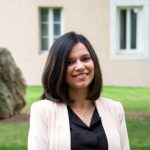
Postdoctoral Researcher on the VICO project
Project:
Rural Villages, Migration, and Intercultural Communication (VICO) is a sociolinguistic study of migration in rural areas. The project works with rural communities in Ireland to understand how different languages and cultures coexist in these environments, investigating the obstacles and opportunities for intercultural communication in rural areas. The ethnographic research will investigate how intercultural communication emerges from the interaction between individuals and the Irish rural landscape, and what factors may help or prevent successful communication. The research team will collect information on language use, and on the practices of translation and interpreting, and on the use of different languages in the context of different cultural practices (such as sports, theatre, music, cooking). Finally, the research will explore links between migration and rural development through focus groups and participatory research. In this way, VICO creates new knowledge on how rural areas are dealing with diversity, and on the role that multilingualism may have in rural development.
Bio:
Dr. Pilar Luz Rodrigues is a Postdoctoral Researcher at the University of Galway. Previously, she was as a Research Assistant at the South East Technological University (SETU), working with the Dean of the School of Humanities on social and health related research projects. She also taught several courses within the School of Humanities at SETU between 2017 and 2023. Dr. Rodrigues concluded her PhD in Sociology in 2023, under the President’s Scholarship, with a thesis titled “Mitigating the Effects of Precarity: Brazilian Migrant Workers and Place-Making in Rural Ireland”. Her research involved one year and a half of fieldwork with Brazilian migrant workers in rural Ireland, particularly in Gort, Ireland’s Little Brazil. In addition, Dr. Rodrigues has had research experience at international organizations, such as the International Organization for Migration (IOM – UN Migration), and NGOs, such as the Irish Council for International Students (ICOS). She is a member of the Race and Ethnicity Study Group of the Sociological Association of Ireland (SAI), and of the Sociology of Migration Research Network of the European Sociological Association (ESA). Her research interests include migration, social policy, and cultural diversity.
Contact:
Email: pilar.luzrodrigues@universityofgalway.ie
Dr Nikita Koptev
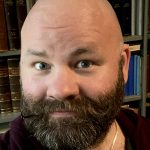
Research Assistant at the “Theatronomics: the business of theatre, 1732–1809” project
Bio:
Dr Nikita Koptev earned his PhD in Irish language and folklore from the University of Galway in 2023, after completing his BA in Russian philology and MA in comparative folklore and mythology in Russia. His doctoral research was focused on the transmission of texts during the operation of the Schools’ Scheme initiated by the Irish Folklore Commission in 1937-1938. Currently, Nikita’s interests are in two main areas – folklore and the language of far-right groups in Ireland, Russia, and Japan.
Nikita works as a Research Assistant at the “Theatronomics: the business of theatre, 1732–1809” project. This interdisciplinary project, funded by the European Research Council, is led by PI David O’Shaughnessy and aims to analyse financial data on the two major eighteenth-century London theatres, Drury Lane and Covent Garden, using economic, cultural, historical, and literary methods.
Contact:
E-mail: nikita.koptev@universityofgalway.ie
Dr Colleen Curran

Marie Skłodowska-Curie Postdoctoral Fellow, BretPal (Breton Palaeography) Project
Previously seen as a ‘Celtic backwater’ during the expansion of the Carolingian empire, early medieval Brittany flourished as a hybrid region, blending cultural and intellectual traditions from Ireland, Britain, and Carolingian Europe. Annexed into the Carolingian empire in c. 792, early medieval Brittany continued to seek independence throughout the ninth century, ultimately establishing itself as an independent region in c. 840, while maintaining important connections with Britain and Ireland. Brittany was, thus, a thoroughfare for ideas and cross- cultural exchanges between the ‘Insular’ world (i.e., Britain and Ireland) and Carolingian Europe. These cultural exchanges are most visible in the surviving written evidence attributed to Brittany, which remains largely understudied. Most manuscripts attributed to this region display a hybrid script, which has been labelled Breton Caroline minuscule but has not yet been systematically defined. This script reflects the region’s cultural hybridity, since it displays characteristics of both the Insular script system and Caroline minuscule, the supranational script developed in late-eighth century Francia and adopted beyond the Carolingian empire. A focused study of Breton Caroline Minuscule will define what this script is, initiate a corpus of manuscripts written in this script, and advance our understanding of what can be identified as ‘Breton’. This will yield a much deeper understanding of the cultural expressions of identity within the political and cultural landscape of early medieval western Europe.
The Breton Palaeography project (BretPal) will provide the first palaeographic study of the early medieval manuscripts attributed to Brittany (c. 780‒1100). With its cross-cultural, interdisciplinary approach, BretPal is a unique project designed to address the questions of what is BCM, who wrote it, and where? The answers to these questions will determine future identification of Breton manuscripts and resituate early medieval Brittany within the wider scribal and intellectual traditions of early medieval western Europe, upon which Brittany drew and to which it greatly contributed.
Bio:
Colleen Curran is a Marie Curie Postdoctoral Research Fellow at the University of Galway under the mentorship of Dr Jacopo Bisagni. She was awarded her PhD in Palaeography and Manuscript Studies from King’s College London in 2017, with Professor Julia Crick as her supervisor and Professor Peter Stokes as her secondary supervisor. She was a Junior Research Fellow and then a Research Fellow at Corpus Christi College, University of Oxford from 2017 through to 2021. She then was a Postdoctoral Research Fellow on the Searobend project at Trinity College Dublin from 2021 to 2022.
Contact:
E-mail: colleen.curran@universityofgalway.ie
Piaras Ó Giobúin

Projects: RePEAT and LIFE Multipeat
Piaras Ó Giobúin (B.Sc.) graduated in 2014 from NUI Galway with a major in Botany. He has since worked as ecologist in the public and private sector, both in Ireland and abroad.
In recent years much of his work has been centred around the flora and fauna of blanket bogs – working as a botanist with UKCEH in the Countryside Survey, and as an Advisory Officer with NPWS on the Curlew Conservation Programme.
He is currently employed by the University of Galway as a Project Ecologist on LIFE Multipeat – a project which aims to restore and manage peatlands in Ireland. He is also involved in the RePEAT project which aims to use historical maps to quantify past and inform future land use change on Irish peatlands.
Contact:
E-mail: piaras.ogiobuin@universityofgalway.ie
Dr Chris Tanasescu
Researcher, PIETRA Project
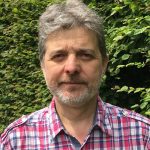
Chris Tanasescu has degrees in both English and Computer Science and works at the intersection of Natural Language Processing (NLP), network analysis, poetry, and translation.
He is the author, editor, or translator of over twenty books, including an internationally praised computationally assembled poetry anthology and a topic-modeling-driven collaborative poetry collection described by Servanne Monjour (Sorbonne University) as a “pioneering computational translation.” As an internationally awarded intermedia poet (a.k.a. MARGENTO), he has chaired the #GraphPoem performances at the Digital Humanities Summer Institute since 2019.
He previously served as Professor and Coordinator of Digital Humanities at University of Ottawa and Altissia Chair of Digital Cultures and Ethics at UCLouvain, as well as Senior Research Scientist with the Internet Interdisciplinary Institute (UOC, Barcelona, Spain).
As a PIETRA researcher, Chris is in charge of computationally assembling and analyzing multilingual and multimodal datasets that are relevant to the 19th century Catholic publishing industry in Europe and beyond.
Contact:
E-mail: cristian.tanasescu@universityofgalway.ie
Dr Chris McCann
IRC Government of Ireland Postdoctoral Research Fellow

Project:
“Ag seinm a rúnphoirt/Playing his secret tune: Ceol i saothar liteartha Mháirtín Uí Chadhain/Music in the fiction of Máirtín Ó Cadhain”
This IRC-funded project is a comprehensive study into music, song, and dance in the prose fiction of Máirtín Ó Cadhain (1906-1970). A pioneer of Irish-language modernist fiction, Ó Cadhain was also a devoted folklore collector and had a particular affinity for traditional song in Irish. Ó Cadhain’s work is notable for the intersection between traditional musical practices and techniques emblematic of literary modernism. Music, song, and dance are frequently employed as symbolic and narrative devices throughout his work to explore a number of important themes.
Drawing on an interdisciplinary methodology, this project assesses the mechanics, aesthetics and legacies of Ó Cadhain’s musical prose. The analysis provides a broad critical platform of the kind previously afforded to other Irish writers in the English language who have used musical techniques, most notably James Joyce. Importantly, the project accounts for the specific historical, sociopolitical, and literary contexts of the Irish language and the influence of Ó Cadhain’s lifelong language activism and advocacy.
The project also aims to provide a ‘listening space’ for Ó Cadhain’s musical fiction through a variety of interactive outputs, including public events and workshops that bridge gaps between the written word and physical performance.
Bio:
Dr Chris McCann is an IRC Postdoctoral Fellow in Irish under the mentorship of Prof. Rióna Ní Fhrighil. Chris is originally from Perth, Western Australia. He completed his IRC-funded PhD project, entitled ‘Music and Social Hierarchy in Twentieth-Century Irish Literature’ at the University of Galway in 2022. He was subsequently the Folklore Project Officer for the CUPHAT (Coastal Uplands: Heritage and Tourism) project based at University College Dublin, working closely with communities in the Wicklow and Blackstairs Mountains on a variety of heritage-based initiatives including an Oral History project and conducting workshops with local schools.
His research interests include prose fiction in both Irish and English, music-in-literature studies, literary modernism, translation, music and traditional song, and oral history and heritage.
Contact:
E-mail: christopher.mccann@universityofgalway.ie
Dr Christian Schweizer
Irish Research Council Government of Ireland Postdoctoral Fellow
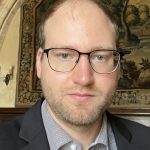
Project:
‘Dicuil – an Irish and Carolingian Universalist and his Intellectual Legacy (DICUIL)’
Dicuil was one of the first Irishmen to make an international career as a scholar. He worked for the Carolingian emperors Charlemagne (747–814) and Louis the Pious (778–840), and wrote several scientific, grammatical, poetic, and geographical texts between 814 and 825. While a considerable quantity of his writings is extant, most of them have long been ignored by modern scholarship. This is partly because they are hard to understand due to the complexity of their intellectual contents and Latin language. Only his Liber de mensura orbis terrae (‘Book on the measurement of the orb of the earth’) has attracted considerable attention.
The extent of early medieval Irish knowledge is highly controversial. Dicuil’s texts as key sources have barely been used so far. This project will shed new light on this issue by first analysing Dicuil’s legacy in its entirety. Three of Dicuil’s works remain inaccessible and understudied, one of them even unedited. The project will analyse these works and make them accessible to scholarship. This will facilitate a comprehensive analysis of Dicuil’s Latinity and style, the early medieval reception of Dicuil himself (in the manuscripts of his texts), and his scholarly profile. For instance, how did his Irish education influence his language, interests, and legacy?
Exactly 1,200 years after Dicuil completed his last three texts, the project will fully reintroduce him to the academic and general public, pushing the boundaries of our knowledge about early medieval Irish scholarship and its impact on the ‘Carolingian renaissance’.
Bio:
Christian Schweizer studied Latin and History at the University of Tübingen. After graduating with distinction, he worked as a trainee teacher at a German grammar school, and as a trainee editor for the Jan Thorbecke Verlag.
From September 2018 to February 2023, he was a Postgraduate Research Scholar at the Irish Research Council Laureate Award Project ‘The Irish Foundation of Carolingian Europe (IFCE): The Case of Calendrical Science (Computus)’ at Trinity College Dublin.
His PhD thesis provides the first complete edition, translation, and textual analysis of Dicuil’s De cursu solis lunaeque (814-818), also known as Liber de astronomia or Computus.
In 2022, he was awarded an MGH Fellowship, allowing him to work one month in the library of the Monumenta Germaniae Historica in Munich.
Contact:
E-mail: christian.schweizer@universityofgalway.ie
Dr Mary Sweeney
Postdoctoral Researcher on Global and Local Scholarship on Annotated Manuscripts (GLOSSAM)

Project:
GLOSSAM is a four-year research project (2022–2026) based in the Moore Institute at the University of Galway, directed by Dr Pádraic Moran. The project is funded by the Irish Research Council Laureate Awards. The GLOSSAM project will enhance our understanding of reading, education, scholarship, and knowledge transfer in the pre-modern world, by creating new narratives, conceptual frameworks, digital tools and methodological models for the study of glosses. Glosses are the paratexts transmitted between the lines and in the margins of manuscript books, micro-texts that control how the central texts were read and interpreted. Glosses are as ubiquitous as books themselves. Recent research has discovered that they are a truly global phenomenon, found throughout the literate cultures of Europe, the Middle East, and South and East Asia. The potential now exists to create a new narrative for the history of glossing in an expanded global context.
Biography:
Dr Mary Sweeney is a Postdoctoral Research Fellow working with the GLOSSAM project. She recently completed her IRC-funded PhD at the University of Galway on Hellenistic Judean identity within the context of the fragmentary tragedy the Exagoge of Ezekiel. Her research interests include exploring cross-cultural exchanges, and the inheritance of Greek educational practices and Greek language materials in the Latin West. Within the GLOSSAM project, Mary’s research will include examining the role of glosses in the transmission of knowledge in Europe with a focus on the glossing tradition in the sixth-century Latin grammar of Priscian.
Contact:
E-mail: msweeney@universityofgalway.ie
Dr Raluca Tanasescu
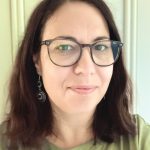
Postdoctoral researcher (“Translation and Global Media”) on the ERC-CoG Project “PIETRA: Translation and Communication” (PI: Prof. Anne O’Connor)
https://orcid.org/0000-0002-2789-5145
Project:
PIETRA focuses on translation practices in the institution of the Catholic Church and the multilingual communication of religious messages against a background of technological change. It poses key research questions relating to consistency of message in a large multilingual institution across different languages, cultures and communicative formats. PIETRA analyses the translation processes and products of the Catholic Church across three different media (print, web and social media) and in two different time periods to advance understandings of how multilingual dissemination intersects with technological change and institutional ideology. PIETRA combines the latest advances in empirical translation research, data capture and analytics, with sociological and ethnographic investigations to form a model for the analysis of the products and processes of large-scale multilingual dissemination.
Bio:
Raluca Tanasescu received a PhD in Translation Studies from the University of Ottawa’s School of Translation and Interpretation. Her doctoral work was supported by the very prestigious Ontario Trillium Award and the Vanier Canada Graduate Scholarship between 2013 and 2018. From 2019 to 2023, she was a postdoctoral researcher on the European Research Council-funded project “The Normalization of Natural Philosophy” at the University of Groningen, where she worked on corpus acquisition and expansion methods and on the social and semantic network analysis of several multilingual early modern natural philosophy data sets.
Raluca is interested in how diversity broadly understood and, particularly, multilingualism and multimediality shape the disciplines of translation studies and digital humanities as well as in the role played by complexity thinking in modelling interdisciplinary research processes. As a PIETRA researcher, she uses this interdisciplinary framework to analyse translations published on digital platforms, social media and news websites by the Catholic Church and to examine the impact of technology on multilingual institutional communication at a global scale. She currently serves as the Multilingualism and Multiculturalism Committee Chair for the Alliance of Digital Humanities Organizations.
Contact:
E-mail: raluca.tanasescu@universityofgalway.ie
Office: Hardiman Research Building, room THB-1013
Dr Máiréad Casey
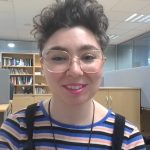
Postdoctoral researcher/project manager for the MSCA-actions funded REBPAF project
Project:
Re-mediating the Early Book: Pasts and Futures’ (REBPAF) is a European Commission-funded MSCA Doctoral Network that supporting 13 PhD researchers based in the University of Galway, University of Antwerp , University of Alicante, University of Zürich, University of Vienna, and University of Bristol.
Bio:
Máiréad Casey is a post-doctoral researcher/project manager for the MSCA-actions funded REBPAF project. She is a Lecturer in Film & Television Studies with the Huston School of Film and Digital Media. She teaches Film Theory, Critical Theory, Gender & Sexuality Onscreen, and Television Drama. Her research interests include horror, representations of sexual violence, digital feminist activism, and networked misogyny.
Contact:
E-mail: mairead.casey@universityofgalway.ie
Dr Patricia O’Beirne
Postdoctoral researcher on ‘The Price of Performance: A Question of Economic Sustainability for Independent Theatre Production in Ireland, Northern Ireland and Scotland 2000-2020’
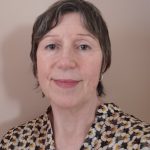
Project:
Patricia will be working with Miriam Haughton (O’Donoghue Centre for Drama, Theatre and Performance), PI of IRC Laureate award ‘The Price of Performance: A Question of Economic Sustainability for Independent Theatre Production in Ireland, Northern Ireland and Scotland 2000-2020’ (TPOP). This research will occur from May 2023-October 2025, utilising mixed methods research to analyse budgets, policies, and the wider economic footprint of independent production to assess if, and how, sustainability of creative practice occurs in the face of major economic, social, environmental and political challenges locally, nationally, and globally. TPOP provides the first transnational, interdisciplinary, qualitative, and quantitative analysis of the economics of independent theatre production between 2000-2020 informed by the economic, geographic, artistic and socio-cultural conditions of Ireland, Northern Ireland and Scotland. This research questions how independent theatre production has been costed in theatre, arts and cultural scholarship and policies in these specific regions, further framed by EU arts policies, investments and programmes. The project examines the financial structures of independent theatre production via six established companies, including analysis of theatre budgets, funding models, the relationship between private and public sponsorship, partnerships, revenues generated from ticket sales and other associated production events, and assesses the impact of major political, economic, social and environmental change in the 21st century on the economic sustainability of independent theatre production in northern European locales.
Bio:
Dr Patricia O’Beirne is a postdoctoral researcher in the School of English and Creative Arts, working on the TPOP project. She completed her Masters in Drama and Theatre (2013), and her Doctoral Thesis as an Abbey Theatre Digital Archive Research Fellow (2018), with the O’Donoghue Drama, Theatre and Performance Centre in University of Galway. She also holds a Bachelor of Engineering (Hons) 2005, from Galway-Mayo Institute of Technology. She has published and presented papers and written chapters for collections on topics such as feminist theatre in 1980s Ireland, and political and working class plays as interrogations of historical and societal concerns. She was the lead research assistant for a collaborative project between the University of Galway and the Abbey Theatre in 2015, which involved transcribing and digitising the Abbey Theatre Minute Books from the years 1904 to 1939.
Contact:
Email: Patricia.O’Beirne@universityofgalway.ie
Dr Marco Emanuele Omes
Postdoctoral Researcher on MILC Project
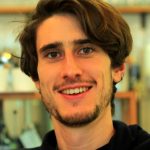
Project:
MILC, “MedIcal Literature and Communication about Child health (1850-1914)”, is a comparative transnational study of medical literature about child health. It studies child health publications for parents in English, Italian, and French, comparing the discourses and strategies they used to convey scientific information to a non-specialist audience.
The period between 1850 and 1914 saw the rise of the popularization of science. Scientist sought channels to circulate scientific knowledge among the public, starting a flourishing market of popular medical literature. Child health texts circulating through this market aimed to prevent infant mortality and improve general health, especially by countering widespread, potentially lethal misinformation about breastfeeding and arguing the importance of regular exercise for older children. In this period, vaccination also emerged as a preventive tool, which resulted in the rise of the first anti-vaccination movements. Information and practices about these aspects also circulated across national borders via translation.
MILC compares how popular childcare books and pamphlets in English, French, and Italian conveyed information about these issues; it analyses their discourses, themes, and strategies in relation to national health improvement programmes, and to ideas about bodily agency (or lack thereof) applied to children and mothers; and it investigates the role of translation in the international circulation of these texts.
Biography:
Marco Emanuele Omes is a postdoctoral researcher on the IRC-funded MILC project, led by Dr Anna Gasperini. He has recently completed a three-year postdoctoral fellowship at the University of Milan (Italy), during which he studied the transformations of smallpox vaccination policies in the Italian States between 1800 and 1861. By means of a transnational and a comparative approach, his work investigates health laws and institutions, the conceptualisation of diseases, and scientific communication issues (i.e., the relationship between physicians and public authorities, or between professionals and laypeople) in the 19th century. Some of the project results have recently been published on Centaurus and Studi Storici.
Previously, Marco focused on the cultural history of politics of Napoleonic era during his doctoral studies at the Scuola Normale Superiore di Pisa (Italy) and Sorbonne Université (France). His analysis of Napoleonic festivals in the context of the French hegemony over the European continent will soon be published (Rome, Viella, forthcoming in 2023). In the past few years, Marco was also research fellow at the German Historical Institute (Rome, Italy), the Leibniz Institute of European History (Mainz, Germany), and the Fondation Napoléon (Paris, France).
Contact:
E-mail: marco.omes@universityofgalway.ie
Dr Iryna Andrusiak
Postdoctoral researcher on MISTE project

Project:
MISTE, Multilingual Island: Sites of Translation and Encounter, is a comparative study of multilingual and multicultural encounters on the Island of Ireland (ROI and Northern Ireland) through the lens of language and translation. The project seeks to investigate three types of sites of everyday multilingual interactions (religious sites, sports sites and community/arts centres) where individuals from different backgrounds come together on an everyday basis. Through a variety of qualitative and ethnographic methods, the project endeavours to explore multilingual practices in Galway and Belfast; to research the role of translation in bringing together migrants / refugees and local communities; to explore the creative potential of translation to raise awareness of cultural diversity in Ireland; to compare good practices and approaches in Northern Ireland and in the Republic of Ireland to migrant / refugee integration.
The project aims to identify and gain new insights into factors that help or prevent communication between migrants and local communities in order to build a shared pathway to more inclusive societies. The project also seeks to explore the work of key mediating figures (social workers, activists, volunteers, coaches, priests) who enable multicultural and multilingual communication by bridging linguistic and cultural gaps between migrants / refugees and local communities.
The project will also cooperate with arts practitioners to organise creative translation workshops that involve the interplay of languages, traditions and cultures.
Biography:
Originally from Ukraine, Iryna joined the Moore Institute in February 2023 as a post-doctoral researcher on the MISTE project. She completed her PHD in Germanic languages in Ukraine. She was previously a lecturer and a researcher at Uzhhorod National University, Ukraine. With a background in linguistics, translation and EFL teaching, Iryna has long-term experience researching new words in English from the perspective of speakers’ creativity with language, social media texts, rendering Ukrainian national realia in English translation, EFL/ESL teaching and teaching in higher education. Iryna was on the team of the “English for Universities” project (British Council Ukraine) and the “New generation School Teacher” (British Council Ukraine). She is a certified ESP teacher trainer. She is now particularly interested in the role of language and translation in everyday interactions of migrants and asylum seekers, non-professional translation, ESOL teaching and creative power of translation.
Contact:
E-mail: iryna.andrusiak@universityofgalway.ie
Dr Stephen Sun
Postdoctoral Researcher on the ERC-funded project ‘Theatronomics: The Business of Theatre, 1732-1809’

‘Theatronomics: The Business of Theatres, 1732-1809’ is an interdisciplinary project funded by the European Research Council, led by PI David O’Shaughnessy. It aims to analyse financial data on the two major eighteenth-century London theatres, Drury Lane and Covent Garden, by economic, cultural history, and literature methods. As an economic historian, Stephen’s role is to apply econometric analysis in conjunction with the work of the cultural and literary specialists on the team to achieve a fuller understanding of the multifaceted commercial and cultural role of the theatre in eighteenth-century British life.
Stephen completed his doctorate at University of California, Davis, focusing on historical trade and industrial development. His thesis, Seeds of American Industry, was on the development of the American agricultural implements industry in the 19th century, with the aim of explaining the role of the geography of markets on innovation and industrial growth. He has experience in digitization and managing and augmenting incomplete data sets from diverse sources. His research interests are in the growth and development of industries or other commercial activities from the 18th to early 20th centuries.
Dr Sarah Hoover
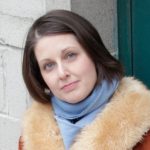
Postdoctoral researcher on the EU Horizon 2020 project CLS INFRA
Project:
Computational Literary Studies Infrastructure (CLS INFRA) is a four-year partnership to build a shared resource of high-quality data, tools and knowledge to aid new approaches to studying literature in the digital age. The digital age offers challenges and opportunities for completing research on Europe’s multilingual and interconnected literary heritage. At present, the landscape of literary data, methods, and tools is diverse and fragmented. Even though many resources are currently available in digital libraries, a lack of standardisation hinders their access and reuse. The European Commission-funded CLS INFRA project will help to build the shared and sustainable infrastructure needed to undertake literary studies in the digital age. The project will align these diverse resources with each other, with the tools needed to interrogate them, and with a widened base of users. The resulting improvements will benefit researchers by bridging gaps between greater and lesser-resourced communities in computational literary studies and beyond, ultimately offering opportunities to create new research and insight into our shared and varied European cultural heritage.
Bio:
Dr Sarah Hoover is a postdoctoral researcher in the School of English and Creative Arts. She works on the EU Horizon 2020 project CLS INFRA. Her publications have appeared in Feminist Encounters and the Routledge Handbook Role-Playing Game Studies: Transmedia Foundations and her monograph Dramaturgies of Participation: larping audiences into theatre is forthcoming from Palgrave MacMillan. Her game-led interactive performances have been produced in the US and Ireland. Her dramaturgical credits include performances from Ireland, the UK and the US.
Her transdisciplinary work draws on artistic and qualitative methodologies to explore the development of interactive theatre through affective and reflective dramaturgies. She also experiments with DH methodologies to explore audience reception and criticism of interaction in performance.
Contact:
Email: sarah.hoover@universityofgalway.ie
Dr Colm Mac Gearailt
Postdoctoral Researcher on CARTLANN project

Project:
Dr Colm Mac Gearailt is a postdoctoral researcher on ‘CARTLANN: Gníomhaíochas, teanga agus na meáin – ag baint úsáid as cartlanna Chonradh na Gaeilge chun tuiscint a fháil ar pholasaithe i leith na Gaeilge ar an dá thaobh den teorainn’, led by Dr John Walsh, School of Languages, Literature, and Culture. The research is funded by The HEA North-South Research Programme 2021, under theShared Island Initiative. CARTLANN engages with the Conradh na Gaeilge archival papers, housed in the University of Galway. The project investigates the campaigning work of the all-Ireland Irish language voluntary organisation, Conradh na Gaeilge, with a specific focus on the role of media as part of their language activism.
Bio:
From the Corca Dhuibhne Gaeltacht, Colm Mac Gearailt completed his IRC-funded PhD, entitled ‘Teaching the Nation’s Past: Irish History in Secondary Schools, 1924-69’ at Trinity College Dublin in 2019. In 2022 he completed a post-doctoral research position with SEALBHÚ, DCU, where he conducted an Early Enactment Review of the Junior Cycle Irish Curriculum Specifications (L1 and L2), under Prof Pádraig Ó Duibhir, on behalf of the NCCA. He worked as a postdoctoral researcher in 2019, under Dr John Walsh (TCD) conducting primary research towards an upcoming biography of Archbishop John Charles McQuaid. During his PhD, Mac Gearailt also translated the autobiographies of Earnáin de Blaghad from Irish to English, (2016-17) which were subsequently used towards the late TCD Prof. David Fitzpatrick’s Ernest Blyth: A Double Life (Cork 2018).
His research interests are in history education, twentieth-century Irish social history, and the link between national identity, education, and language. He also has professional experience of working in television and media.
Contact:
Email: colm.macgearailt@universityofgalway.ie
Dr Andrea Ciribuco
Lecturer in Italian, and an Irish Research Council Laureate Fellow on the project “VICO”
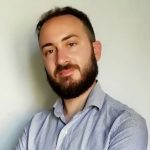
Research Project:
Rural Villages, Migration, and Intercultural Communication (VICO) is a sociolinguistic study of migration in rural areas. Theproject works with rural communities in Ireland to understand how different languages and cultures coexist in these environments, investigating the obstacles and opportunities for intercultural communication in rural areas.
Rural areas present unique sets of challenges related to the coexistence between migrants, refugees, and local communities. Many rural communities in Europe may be already experiencing issues such as ageing populations, loss of economic vitality, distance from economic and cultural centres, reduction of public services; the migrants’ cultural and linguistic displacement intersects with these issues in complex ways, which can result in difficult coexistence.
Despite significant concentrations of migrant populations in rural areas in multiple European countries (with Ireland being one of the top five countries for rural migration according to a 2019 report from the EU’s Joint Research Centre), the challenges experienced by these populations have been overlooked. Research on multilingualism and multiculturalism has so far concentrated overwhelmingly on metropolitan areas. VICO fills this gap in the research, developing an interdisciplinary framework to study the sociolinguistic experience of migrants and refugees in rural areas.
The ethnographic research will investigate how intercultural communication emerges from the interaction between individuals and the Irish rural landscape, and what factors may help or prevent successful communication. The research team will collect information on language use, and on the practices of translation and interpreting, and on the use of different languages in the context of different cultural practices (such as sports, theatre, music, cooking). Finally, the research will explore links between migration and rural development through focus groups and participatory research. In this way, VICO creates new knowledge on how rural areas are dealing with diversity, and on the role that multilingualism may have in rural development.
Bio:
Andrea Ciribuco is a lecturer in Italian at the University of Galway, and an Irish Research Council Laureate Fellow. His work investigates the role of translation in the experience of individuals with a migrant or refugee background; the links between multilingualism and creativity; and the use of the arts for intercultural communication.
He was recently co-investigator of the British Academy project “STRIVE – Sustainable Translations to Reduce Inequalities and Vaccination hEsitancy”, analysing the impact of translation and interpreting in the COVID-19 vaccination campaign in Italy. Previously (2017-2021), he was IRC-Marie Skłodowska-Curie Actions CAROLINE fellow, working with asylum seekers in Italy on issues of language, social justice, and intercultural communication.
Contact:
E-mail: andrea.ciribuco@universityofgalway.ie
Dr Anna Gasperini

Irish Research Council Starting Laureate – Principal Investigator of “MILC”
Project:
MILC, “MedIcal Literature and Communication about Child health (1850-1914)”, is a comparative transnational study of medical literature about child health. It studies child health publications for parents in English, Italian, and French, comparing the discourses and strategies they used to convey scientific information to a non-specialist audience.
The period between 1850 and 1914 saw the rise of the popularization of science. Scientist sought channels to circulate scientific knowledge among the public, starting a flourishing market of popular medical literature. Child health texts circulating through this market aimed to prevent infant mortality and improve general health, especially by countering widespread, potentially lethal misinformation about breastfeeding and arguing the importance of regular exercise for older children. In this period, vaccination also emerged as a preventive tool, which resulted in the rise of the first anti-vaccination movements. Information and practices about these aspects also circulated across national borders via translation.
MILC compares how popular childcare books and pamphlets in English, French, and Italian conveyed information about these issues; it analyses their discourses, themes, and strategies in relation to national health improvement programmes, and to ideas about bodily agency (or lack thereof) applied to children and mothers; and it investigates the role of translation in the international circulation of these texts.
Bio:
Dr Anna Gasperini is an IRC Starting Laureate based at the Discipline of Children’s Studies. She researches issues of health related to underprivileged, exposed, and/or powerless groups, mainly the poor and children/young people, focusing on the 19th and early-20th centuries. Her research approach combines literary and historical research with transnational comparative analysis. She has recently completed the Marie Skłodowska-Curie Actions research project FED – Feeding, Educating, Dieting: A Transnational Approach to Nutrition Discourses in Children’s Narratives (Britain and Italy, 1850-1900), which studied English and Italian nineteenth-century children’s literature and the history of child nutrition. The project results were published on Modern Language Open and on the Journal of Victorian Culture. She is the author of Nineteenth Century Popular Fiction, Medicine, and Anatomy – The Victorian Penny Blood and the 1832 Anatomy Act (Palgrave Macmillan, 2019).
Contact:
E-mail: anna.gasperini@universityofgalway.ie
Anna Furtado

Research Assistant on the PIETRA Project
Research Project:
Anna is a research assistant to the PIETRA Project on the area of Corpus Linguistics and Data Science. PIETRA’s aim is to study the translation products and processes that underpin the Catholic Church’s multilingual and global communication.
Bio:
She holds a masters on Technology for Translation and Interpreting (EMTTI) from the University of Wolverhampton and the University of Malaga and a BA in Foreign Languages Applied to Multilingualism (LEA-MSI) from the University of Brasilia. Anna’s research interests involve Corpus Linguistics for Translation and Lexicography, Data Science for Natural Language Processing (NLP), and NLP technologies to foster linguistic/human rights.
Contact:
E-mail: annabeatriz.dimasfurtado@nuigalway.ie
Room THB-2015, Floor 2, Hardiman Research Building
Dr Leo Shipp
Lecturer in the History Department, and a Postdoctoral Researcher on the ERC-funded project ‘Theatronomics: The Business of Theatre, 1732-1809’
Research Project:
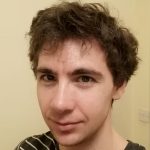
‘Theatronomics: The Business of Theatres, 1732-1809’ is an interdisciplinary project funded by the European Research Council. Its PI is David O’Shaughnessy, and it includes three postdoctoral researchers (eventually four) and two research assistants. The project uses various forms of analysis, including an econometric approach and digital humanities methods, in the study of financial data pertaining to the two major eighteenth-century London theatres, Drury Lane and Covent Garden. Its primary source is the detailed account books produced by the two theatres in the period. By subjecting this hitherto-understudied material to innovative methods of scholarship, the project will be able to furnish new insights into the business of theatre, the commercial life of London, and the production and consumption of culture in eighteenth-century Britain.
Bio:
Dr Leo Shipp lectures in the History department on the early modern period and eighteenth century, and is a postdoctoral researcher in the School of English and Creative Arts. He works on Prof. David O’Shaughnessy’s project, ‘Theatronomics: The Business of Theatre, 1732-1809’. His AHRC-funded doctoral research, carried out at the University of Exeter, was on the British poets laureate of the long eighteenth century. He subsequently developed this research into a monograph, The Poets Laureate of the Long Eighteenth Century, 1668-1813: Courting the Public, which was published in the Royal Historical Society’s New Historical Perspectives series in August 2022. He has also published in the English Historical Review (April 2021).
He takes an interdisciplinary approach to eighteenth-century studies, being primarily a historian but engaging closely with English literature scholarship and carrying out research in Latin, French, Spanish and Italian material. As well as theatre history, he is particularly interested in the usage of the Spanish and Italian languages in eighteenth-century Britain.
Contact:
E-mail: leo.shipp@universityofgalway.ie
Dr Jennifer Buckley
Postdoctoral Researcher on the ERC-funded project ‘Theatronomics: The Business of Georgian Theatre, 1732-1809’.
Jennifer is Postdoctoral Researcher on the ERC-funded project ‘Theatronomics: The Business of Georgian Theatre, 1732-1809’, led by Prof. David O’Shaughnessy.
Her research interests lie in British literature of the long eighteenth century, with a particular focus on periodical studies, print culture, and sociability. She completed her AHRC-funded PhD in 2020 at the University of York and is currently working on a monograph based on this research, provisionally titled Ecologies of Print: Periodicalism and the Novel, 1700-1760. She is currently co-editing a collection on Character and Caricature, 1660-1820 (Palgrave Macmillan), and has publications forthcoming with Eighteenth-Century Studies and Cambridge University Press.
Contact:
E-mail: jennifer.j.buckley@universityofgalway.ie
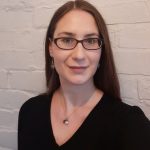
Dr Maria Shmygol
SFI-IRC Pathway Programme Awardee and Principal Investigator of the project ‘Foreign Places and National Identities in English Drama, 1560-1660’
Dr Maria Shmygol leads a Science Foundation Ireland – Irish Research Council Pathway funded research project on early modern English drama, ‘foreign’ geographies, and national identity. She is the editor of William Percy’s manuscript play The Aphrodysial (Malone Society / Manchester University Press, 2022) and co-editor, with Lukas Erne, of the German play Tito Andronico (1620), published by Arden Shakespeare and available in open access. Maria is assistant editor of The Complete Works of John Marston (under contract with Oxford University Press, gen. eds. Martin Butler and Matthew Steggle), and with Eleanor Rycroft, editor of a special issue of the Shakespeare journal on the theme of ‘Shakespeare in Action’. Maria is a member of the Young Academy Ireland and Joint Chair of the British Shakespeare Association, having served as a trustee and director since 2019. Maria has held postdoctoral research fellowships at the Universities of Leeds (2020-21) and Geneva (2016-19), and is a project member of Medieval and Early Modern Orients. Her research has been supported by fellowships at the Library of Congress, the Folger Shakespeare Library, and, most recently, Jesus College, Oxford. Maria’s research interests include textual editing, early modern drama, theatrical culture, travel literature, and cross-cultural encounters.
Contact:
E-mail: maria.shmygol@universityofgalway.ie
Dr Margaret Brehony
Marie Skłodowska-Curie Global Research Fellow working on the project “Cuban-Irish Diasporas: Gender, Race and Ethnic Whitening Strategies”
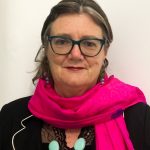
Margaret Brehony is a Marie Skłodowska-Curie Global Research Fellow at the Moore Institute, University of Galway mentored by Professor Dan Carey. She is currently based at the School of Irish Studies, Concordia University, Montreal Canada, working under the supervision of Professor Gearóid Ó hAllmhuráin and will return to the Moore Institute in Sept 2023.
Her research interests include Irish migration to Latin America and the Caribbean, Irish migration and Transatlantic Slavery; Intersections of gender, race and white colonisation in the Spanish Empire. A graduate of NUIG, with an MA in Digital Arts & Humanities from UCC, she earned a PhD in 2012 with a thesis entitled “Irish Migration to Cuba, 1835-1845: Empire, Ethnicity, Slavery and ‘Free’ Labour.” She is President of the Society for Irish Latin American Studies and co-editor with Nuala Finnegan of Irlanda y Cuba: Historias Entretejidas / Ireland and Cuba: Entangled Histories, Boloña, (Havana: 2019).
This MSCA project studies processes of gender, race, and culture in the Caribbean from the perspective of Irish migration to Cuba since the eighteenth century. The approach is multi-disciplinary crossing history, sociology, and digital humanities (DH). Drawing on archival sources in Cuba, Spain, North America and Ireland this study of migration and white colonisation strategies in a time of slavery in Cuba will producethe first open-access digital archive on Irish settlement in the Hispanic Caribbean entitled ‘Cuba-Ireland Digital Archive’ in a digital repository at NUIG hosted. The project will publish rare and endangered archival sources amassed during the research on Omeka S to enhance access to, visualisation, and analysis of sources.
Contact:
E-mail: MARGARET.BREHONY@universityofgalway.ie
Dr Eavan O’Dochartaigh
SFI-IRC Pathway Programme Awardee and Principal Investigator of the project ‘Exploring the Arctic Archive.’

Project:
Eavan’s current research project explores the documentary art and literature of the western Arctic environment (in Alaska, Canada, Greenland, and the Nordic countries) and challenges the simplistic image of the Arctic as a space of ice and snow. Records such as watercolours, sketches, early photographs, travel narratives, personal journals, and periodicals can give us a fascinating insight into a very different Arctic than the one we see represented in twenty-first-century media.
This hidden Arctic can contain many images and texts that do not ‘fit’ with the Arctic imaginary today. There are representations of summer and of flora, of women (and indeed by women), of domesticity and sociability, even representations of ‘explorers’ from the Indigenous viewpoint. By letting these unexpected images lead, the project will uncover and narrate a story of a varied, complex, diverse and inhabited place that unsettles the dominating narrative of the blank and forbidding Arctic.
Bio:
Eavan graduated from University of Galway in 2018 with a PhD in English, funded by the Irish Research Council and a Hardiman Scholarship, under the supervision of Prof Daniel Carey and Dr Nessa Cronin. From 2019 to 2021, she was a Marie Skłodowska-Curie Individual Fellow at Umeå University, Sweden, under the supervsion of Prof Maria Lindgren Leavenworth. Her current project at University of Galway is with the mentorship of Prof Daniel Carey and is funded by Science Foundation Ireland and the Irish Research Council’s Pathway Programme (2022-26). Her first monograph Visual Culture and Arctic Voyages, based on her PhD thesis, was published by Cambridge University Press in 2022.
Contact:
E-mail: eavan.odochartaigh@universityofgalway.ie
Dr Brendan Tobin
Marie Sklodowska-Curie Individual Fellowship
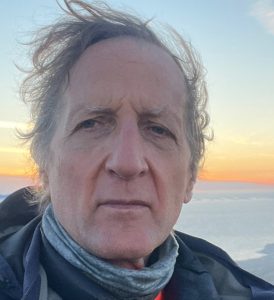
Research:
Brendan’s comparative research explores the struggle of indigenous peoples’ of the Predio Putumayo in Colombia for protection from and justice for the impacts of extractive industry activities during the rubber boom in the early 1900s and today. His research is multidisciplinary intersecting genocide, human rights, anthropology, history, social psychology and digital media studies. It’s a story of genocide, resilience, reconciliation and the role of indigenous peoples’ own laws and cultural practices in their revival as peoples. It is also the story of the Irish humanitarian Roger Casement who travelled to the region in 1910 to investigate the activities of the British Registered Peruvian Amazon Company (PAC), and his continuing significance for the peoples of the region today.
Research is being carried out at the Moore Institute under the supervision of Dr. Sean Crosson of the Huston School of Film and Digital Media. Professor William Schabas at the Irish Centre of Human Rights is providing guidance on human rights, genocide and international criminal law. The project proposal was developed in conjunction with the Bora, Huitoto, Muinane and Ocaina peoples of the Rio Igaraparana in the Predio Putumayo, Amazonas, their local government AZICATCH and the Casa de Conocimiento their secondary school. The project includes a secondment at the Forest Peoples Program and collaboration with International NGO’s Picture People and WITNESS in digital storytelling training. Research also benefits from the support of the Departments of Anthropology at Maynooth University, Universidad de los Andes and Universidad Nacional de Colombia.
Bio:
Born in Galway, Brendan holds dual Irish and Peruvian citizenship. A barrister by training, he has over 25 years’ experience in the practice of environmental law, human rights and community development. For many years his work focused on national and international regulation of biodiversity conservation, access to genetic resources and the protection of traditional knowledge. He actively participated in international negotiating forums including the Convention on Biological Diversity, the World Intellectual Property Rights Organization and the Harvard Oil Dialogues. For the past decade his work focused on questions of indigenous peoples and local communities’ legal philosophies, juridiversity, and customary laws, and their role in securing environmental, biocultural and intercultural justice.
Dr. Tobin earned his PhD at the NUI Galway for his research, at the Irish Centre for Human Rights, on Why Customary Law Matters. His monograph Indigenous People’s Customary Law and Human Rights, was published by Routledge in 2014. He has published widely on environmental law, human rights and legal pluralism.
Contact:
E-mail: brendan.m.tobin@universityofgalway.ie
Past Researchers
Edward Purcell

Research Assistant, ‘Theatronomics: The Business of Georgian Theatre, 1732-1809’
Project:
Theatronomics: The Business of Theatres, 1732-1809’ is an interdisciplinary project funded by the European Research Council, led by PI David O’Shaughnessy. It aims to analyse financial data on the two major eighteenth-century London theatres, Drury Lane and Covent Garden, by economic, cultural history, and literature methods.
Bio:
Edward Purcell is a Research Assistant on the ERC-funded project ‘Theatronomics; The business of Theatre 1737-1809’, led by Prof. David O’Shaughnessy. He holds a Bsc in Applied Social Science from the University of Galway. His undergraduate dissertation, ‘The Discursive Violence of Moral Policing’ undertook a critical discourse analysis of representations of unmarried mothers in early 20th century Ireland, and was nominated for the historical geography Undergraduate Dissertation Prize offered by the Royal Geographical Society. He has worked on several other research projects, including the Annual Tenant Sentiment Survey conducted by Threshold Ireland.
Contact:
Email: edward.purcell@universityofgalway.ie
Dr Tereza Javornícky Brumovska

H2020 Marie Sklodowska-Curie Research Fellow @FHS UK (School of Liberal Arts and Humanities, Charles University)
Project no. 101027291 ENCOUNTER: Experiences of Youth in Natural Mentoring Relationships https://cordis.europa.eu/project/id/101027291
Project website: encounter.mentoring@fhs.cuni.cz
Project leaflet: Project ENCOUNTER
Project:
Natural mentoring relationships (NMRs) can positively affect children’s cognitive and socio-emotional development, well-being, and authentic agency. In addition, NMRs contribute to the intergenerational dialogue and social cohesion in EUs societies, that is, to the current priorities of the EU Council’s youth policy. Though formal youth mentoring interventions (FYM) that aim to foster the benefits of NMRs for socially disadvantaged youths are modelled on NMRs, there is a gap in knowledge on the dynamics and benefits of NMRs experienced in the general population of young adolescents (12-15 years) in the EU. Besides, despite the recognised benefits of NMRs, no mentoring programmes target the empowerment of youths in mentoring skills in the general population. Building on my previous experience and research on youth mentoring, the ENCOUNTER aims to examine the NMRs in experiences of young adolescents in the EU context, using the exploratory qualitative research design that draws on phenomenological interviews and visual participatory methods (PhotoVoice), and focusing on three main objectives:
• RO1: To examine the characteristics, dynamics, and perceived benefits of the natural mentoring relationships experienced by young adolescents in an EU context
• RO2: To conceptualise the theoretical, interdisciplinary youth-centred framework on natural mentoring phenomena by reviewing the relevant youth development theories across disciplines and research literature on NMRs.
• RO3: To contrast the functions, characteristics, and dynamics of NMRs among gender; and the features of NMRs experienced by young adolescents in the CZ and in an international context.
ENCOUNTER project will expand research, theory, and practice in the EU context by implementing novel methodological approaches in the field, enabling interdisciplinary conceptualisation of natural mentoring phenomena, and addressing UN SDG Goals 2030 and EU’s Youth Sector Strategy 2030.
Bio:
With a background in social sciences and social work, Tereza has long-term experience researching the theme of youth mentoring. Her interest in youth mentoring started during her BA studies in 2003 when she volunteered for the Czech Big Brothers Big Sisters/5P mentoring programme. This experience became the research focus of her MA research dissertation, which eventually received funding for publication as a monograph on youth mentoring in the Czech context. This academic passion was further kindled during her PhD on understanding youth mentoring relationships and benefits, completed at NUI Galway. She is now particularly interested in leading participatory arts-based and qualitative research designs with children and young people.
As an MSCA IF Research fellow, Tereza is hosted at the School of Liberal Arts and Humanities at Charles University in Prague under the supervision of Dr Seidlova Malkova; and works closely with Prof. Michal Molcho (the Moore Institute and Department of Children’s Studies at NUI Galway), who co-supervises the project, besides cooperation with Mentoring Europe as another project’s partner.
Contact:
E-mail: tereza.brumovska@fhs.cuni.cz
Susan Bennett
Research Assistant, Theatronomics; The business of Theatre 1737-1809

After over 30 years in a variety of roles within the financial services industry, the opportunity to work on an exciting NUIG project tempted me back to the workplace. I have joined the Theatronomics: The Business of Theatre 1732-1809 project as a Research Assistant.
This project will look at the finances of eighteenth-century theatre in London, focusing on Covent Garden and Drury Lane, 1732–1809. Account-books, ledgers, and ephemeral manuscript folios, held mainly at the British Library and the Folger Library, are the project’s main sources; they contain extensive data on ticket sales, audience composition, actor salaries, payments to other theatre workers, repayments to investors, costume, scenery and other costs.
The project will transcribe and digitize these manuscripts and will use econometric methods to analyse the theatres’ underlying commercial operations. These economic methodologies will then be applied so that new perspectives on the careers of managers, playwrights, actors, and plays emerge. By synthesizing this complex data, Theatronomics will further enable researchers to ask new interdisciplinary questions about the place of theatre within the city of London. The project will develop innovative digital humanities resources for the next generation of eighteenth-century theatre studies.
Contact:
E-mail: susan.bennett@universityofgalway.ie
Dr Maelle Leroux
Postdoctoral Researcher on MILC Project
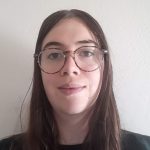
Project:
MILC, “MedIcal Literature and Communication about Child health (1850-1914)”, is a comparative transnational study of medical literature about child health. It studies child health publications for parents in English, Italian, and French, comparing the discourses and strategies they used to convey scientific information to a non-specialist audience.
The period between 1850 and 1914 saw the rise of the popularization of science. Scientist sought channels to circulate scientific knowledge among the public, starting a flourishing market of popular medical literature. Child health texts circulating through this market aimed to prevent infant mortality and improve general health, especially by countering widespread, potentially lethal misinformation about breastfeeding and arguing the importance of regular exercise for older children. In this period, vaccination also emerged as a preventive tool, which resulted in the rise of the first anti-vaccination movements. Information and practices about these aspects also circulated across national borders via translation.
MILC compares how popular childcare books and pamphlets in English, French, and Italian conveyed information about these issues; it analyses their discourses, themes, and strategies in relation to national health improvement programmes, and to ideas about bodily agency (or lack thereof) applied to children and mothers; and it investigates the role of translation in the international circulation of these texts.
Biography:
Dr Maelle Le Roux is a postdoctoral researcher on the IRC-funded MILC project, led by Dr Anna Gasperini. She is a social and cultural historian, with interests in modern Irish and French history, and especially representations, discourses and digital history methods. She recently completed her PhD at the University of Limerick on the representations of Irish nationalist figures in the Capuchin Annual (1930-1977). Some of her research results were published in the Journal of Digital History in 2021. She holds a Master degree in History from Paris Sorbonne, during which she worked on gender in children’s literature in twentieth century France, and on representations of the Easter Rising for children in Ireland.
Contact:
Email: maelle.leroux@universityofgalway.ie
Dr Christopher Lewin
Irish Research Council Postdoctoral Fellow
Project:
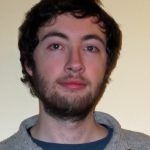
Linguistic forms and language ideology in the revival of Manx Gaelic
Manx is the historical language of the Isle of Man and is closely related to Irish and Scottish Gaelic. It was the spoken tongue of the majority of the population until the mid nineteenth century, when it was increasingly replaced as a community language by English, culminating in the death of the last native speaker in 1974. However, efforts to revive the language have gained wider popularity and success in recent decades. Today the language is spoken by several hundred people, mostly as a second language learnt in adulthood.
The research will investigate the linguistic features of Revived Manx in terms of grammar, vocabulary and pronunciation, as well as speakers’ attitudes and ideologies and the way in which these shape the structure of the language and vice versa.
Bio:
Dr Lewin has research interests in the linguistics, sociolinguistics, philology and literature of Manx, as well as the wider Gaelic and Celtic languages, and has published in prominent Celtic Studies and linguistics journals including Zeitschrift für celtische Philologie, Journal of Celtic Linguistics, Cambrian Medieval Celtic Studies, Language in Society and Papers in Historical Phonology.
From 2020 to 2021 he was employed as a research assistant at Aberystwyth University on a project looking at linguistic variation and change in Manx manuscript sermons, funded by the British Academy, the Leverhulme Trust and Culture Vannin (the Manx Heritage Foundation). Dr Lewin is currently undertaking a two-year Irish Research Council postdoctoral fellowship at the National University of Ireland, Galway, with a project returning to the topic of linguistic change in the context of Manx language revitalization.
Contact:
E-mail: christopher.lewin@universityofgalway.ie
Dr Sam Goodchild
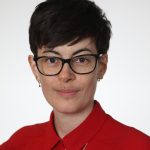
Postdoctoral Researcher on VICO project
Project:
Rural Villages, Migration, and Intercultural Communication (VICO) is a sociolinguistic study of migration in rural areas. The project works with rural communities in Ireland to understand how different languages and cultures coexist in these environments, investigating the obstacles and opportunities for intercultural communication in rural areas. The ethnographic research will investigate how intercultural communication emerges from the interaction between individuals and the Irish rural landscape, and what factors may help or prevent successful communication. The research team will collect information on language use, and on the practices of translation and interpreting, and on the use of different languages in the context of different cultural practices (such as sports, theatre, music, cooking). Finally, the research will explore links between migration and rural development through focus groups and participatory research. In this way, VICO creates new knowledge on how rural areas are dealing with diversity, and on the role that multilingualism may have in rural development.
Bio:
Before joining the University of Galway in January 2023, I was a Postdoctoral Research Fellow at the Centre for Multilingualism in Society across the Lifespan, University of Oslo. From 2020-2022, I studied young people’s language practices in Oslo using a collaborative methodology called citizen sociolinguistics. I gained my PhD from SOAS University of London (2019), during which I researched multilingual practices in a rural village in Senegal. I have given guest lectures and workshops at numerous universities internationally including the University of Oslo, INALCO Paris, and the University of Leeds. I am particularly interested in the relationship between language and space and multimodal communicative practices. My (co-authored) research has been published in edited volumes, handbooks, and journals such as the International Journal of Bilingual Education and Bilingualism.
Contact:
Email: samantha.goodchild@universityofgalway.ie
Dr Dieter Reinisch
Project: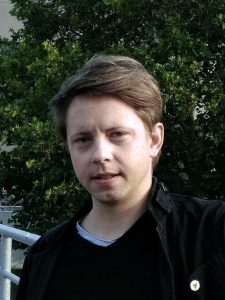
Dieter’s research explores oral history, modern history, social movements, historical international relations, and political violence in Ireland and Europe.
With the assistance of his mentor, Prof. Niall Ó Dochartaigh (School of Political Science & Sociology), Dieter will be researching social movement radicalisation and political violence in Germany and Ireland since the end of World War 1.
Bio:
Dieter comes to us from Central European University in Budapest, where he was a Junior Core Fellow at the Institute for Advanced Study. Before his IAS Fellowship, he was a DAAD Postdoctoral Researcher at the Institute for Social Movements, Ruhr University Bochum. He has taught at the Webster Vienna Private University, the University of Vienna, and the University of Salzburg. He defended his PhD research project, an oral history of Irish republican prisoners between 1971-2000, at the Department of History & Civilization, European University Institute, in Florence, and he has since published several articles in major scholarly journals.
Dieter is a permanent editorial board member of the bi-lingual open-access journal “Studi irlandesi: A Journal of Irish Studies” published with Florence University Press; and regularly writes for national and international newspapers. His articles appeared in Washington Post, Times Higher Education, RTÉ Brainstorm, Irish Examiner, Der Standard, Die Presse, ND.derTag, and Wiener Zeitung, among others.
Contact:
E-mail: dieter.reinisch@universityofgalway.ie
Dr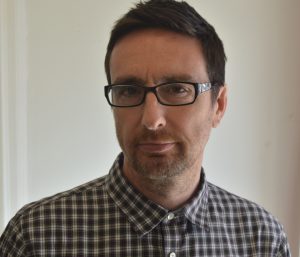 Steven Hadley
Steven Hadley
Project:
Dr. Hadley will undertake key research under the direction of Prof. Daniel Carey (Director of the Moore Institute) in association with academic leaders in the University and within the 2020 team, focusing on monitoring and evaluation against an agreed set of aims, objectives and outcomes for Galway’s year as European Capital of Culture in 2020. These include measuring social and economic impacts against available baseline data and evaluating Galway 2020 activities undertaken in communities and with arts practitioners as part of the European Capital of Culture.
Contact info:
E-mail: steven.hadley@universityofgalway.ie
Dr Cassie Smith-Christmas
Project: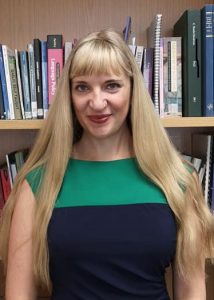
LaFS (‘Language, Families, and Society’) focuses on three types of linguistic minority families—autochthonous, immigrant, and refugee—as a means to elucidating more about how social inequality is perpetuated (or arrested) along linguistic lines, and how policy at the local, national, and international levels can better support linguistic minority families. LaFS therefore will look at how families experience language policy in their daily lives and how this in turn affects their family-internal linguistic practices. It also will look at policymakers’ (government officials, support agencies, teachers, etc.) role in designing and implementing policy that affects linguistic minority families, with the main aim of uncovering any potential gaps and mismatches between families’ lived experiences and policymakers’ perceptions and initiatives. LaFS is envisaged therefore to provide a lens to understanding more about Europe’s three main sociolinguistic challenges: the decline of its many autochthonous minority languages; increased linguistic diversity due to increased mobility among European member states; and what is generally referred to as the ‘refugee crisis.’ Ireland’s multifaceted linguistic make-up in terms of the official status of its autochthonous language (Irish) as well as the fact that historically, it is a country of out-migration rather than in-migration makes it a timely case study for this endeavour. LaFS will therefore centre on families who speak Irish as a home language (autochthonous); Polish (immigrant); and Arabic or Kurdish (refugee) as a means to understanding the challenges these linguistic minority families face and how these challenges affect their sense of identity, belonging, and overall well-being.
Bio:
Cassie’s interest in language use in families initially stemmed from her work with a Scottish Gaelic-speaking family on the Isle of Skye for her PhD thesis at the University of Glasgow, completed in 2012. Since then, she has continued research with families and communities involved in language revitalisation, and she has held fellowships with Soillse at the University of the Highlands and Islands and at the Institute for the Advanced Studies in the Humanities (IASH) at the University of Edinburgh in Scotland. In Ireland, she was a Government of Ireland Irish Research Council Postdoctoral Fellow (2016-2018) with the project ‘The Challenges of Minority Language Maintenance: Family Language Policy in Scotland and Ireland’ and also held a fellowship with the Smithsonian Center for Folklife and Cultural Heritage as co-principal investigator for the project ‘The Intersection of Language and Community in Corca Dhuibhne.’
Publications:
Cassie’s recent publications include a monograph Family Language Policy: Maintaining an Endangered Language in the Home (Palgrave, 2016) and two co-edited collections New Speakers of Minority Languages: Linguistic Ideologies and Practices (Palgrave, 2018) and Gaelic in Contemporary Scotland: The Revitalisation of an Endangered Language (EUP, 2018). She also is the author of 16 peer-reviewed journal articles and book chapters, details of which can be found here on her staff profile.
Contact Info:
E-mail: Cassandra.Smith-Christmas@universityofgalway.ie
Twitter: @cassiesmithxmas
Dr Ciaran Arthur
Project: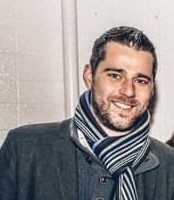
Ciaran’s research interests lie in medieval manuscript studies, monastic culture, liturgy, medical and remedial practices, constructions of magic and paganism, theologies of language and translation, and hermeneutic traditions from England, Ireland, and the Continent.
With the assistance of his mentor Dr. Pádraic Moran (School of Languages, Literatures and Cultures), Ciaran will be working on his project “Intentional Obscurity and ‘Divine Speech’ in Early English Texts”.
Bio:
Ciaran comes to us from Queen’s University, Belfast, where he did his PhD and then held a prestigious postdoctoral award from the Leverhulme Trust. His PhD work was published by Boydell Press in 2018 (‘Charms’, Liturgies, and Secret Rites in Early Medieval England) and he has since published several articles in major scholarly journals.
https://boydellandbrewer.com/charms-liturgies-and-secret-rites-in-early-medieval-england.html
Ciaran was also a curator, with Sinéad O’Sullivan, of the wonderful Ciphers, Codes and Notes online exhibition:
https://www.qub.ac.uk/directorates/InformationServices/TheLibrary/SpecialCollections/DigitalResources/Exhibitions/CiphersCodesandNotesExhibition/
Contact info:
E-mail: ciaran.arthur@universityofgalway.ie
Dr. Laoighseach Ní Choistealbha
Project: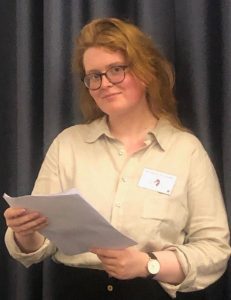
Republic of Conscience is an Irish Research Council-funded project based in the Moore Institute, NUI Galway. The project is concerned with the dissemination of human rights ideas within Irish poetry, both English- and Irish-language Irish poetry, as well as translations from other European languages, within the twentieth century.
Bio:
Laoighseach Ní Choistealbha is a research assistant on the Republic of Conscience: Human Rights and Modern Irish Poetry, and is based in the Moore Institute. Her interests include folklore, poetry, and translation.
Contact Info:
Email: laoighseach.nichoistealbha@oegaillimh.ie
Dr. Andrew Phemister
Project: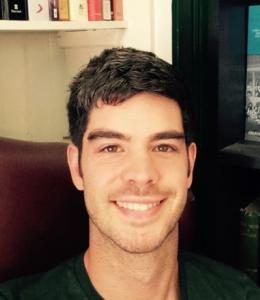
Andrew’s current research project examines the development of boycotting as popular political activism, and in particular the profound impact of the practice on liberal political thought in the late nineteenth and early twentieth centuries. Denounced as a form of terrorism, this organised social and economic ostracism nevertheless generally involved a rejection of violence, seeking to highlight instead the interdependence of the individual and the wider community. As such, boycotting threatened the stability of the existing economic order and the authority of the state, yet initially offered no obvious avenues for legal redress. The project employs methodologies from transnational and intellectual history, and draws on original archival research to examine how the use of the boycott destabilized prevailing conceptions of individualism, rational autonomy, and property, and how the practice shaped the political discourse of modern liberalism.
Bio:
Andrew works on Irish political and intellectual history over the long nineteenth century, with a particular focus on transatlantic republican radicalism and the intersecting issues of land, liberalism, and popular activism. He holds degrees from the University of Edinburgh (MA, PhD) and the University of Cambridge (MPhil), and was formerly a postdoctoral fellow at Edinburgh’s Institute for Advanced Studies in the Humanities, and the University of Oxford. His doctoral work, which is currently being prepared as a monograph, looked at the role of American land reformer Henry George in the Irish Land War.
Contact info:
Email: andrew.phemister@nuigalway.ie
Dr. Anne Karhio

Virtual landscapes? New media technologies and the poetics of place in recent Irish poetry
Irish Research Council and Marie Skłodowska-Curie ELEVATE postdoctoral fellow
Project:
The project focuses on the impact of new media technologies on literary representations of landscape in Irish poetry and poetic culture. It addresses the relationship between new media and poetry both thematically, and through the aesthetic and cultural implications of new forms of dissemination. Works included have been published in print as well as in digital formats, and the project also covers poetry’s engagement with visual and audiovisual arts, music, and other forms of artistic production.
Bio:
Dr Anne Karhio is an Irish Research Council Laureate Project Fellow in the project “Republic of Conscience: Human Rights and Modern Irish Poetry”. Her research interests include contemporary Irish poetry, digital literature and culture, and the aesthetics of space and landscape. She is a graduate of the University of Helsinki and holds a PhD in English from the National University of Ireland in Galway. She has contributed to the European Research Council -funded project “Machine Vision in Everyday Life: Playful Interactions with Visual Technologies in Digital Art, Games, Narratives and Social Media” at the University of Bergen, Norway, and has previously completed a Irish Research Council MSCA co-fund postdoctoral project on “Virtual Landscapes: New Media Technologies and the Poetics of Place in Recent Irish Poetry”. Her publications include a number of journal articles and critical essays on contemporary poetry, electronic literature, digital media aesthetics, and place and landscape. She is the author of Slight Return: Paul Muldoon’s Poetics of Space (Peter Lang, 2016), and the co-edited collection of critical essays Crisis and Contemporary Poetry (Palgrave MacMillan, 2011).
Contact Info:
Moore Institute, National University of Ireland, Galway
E-mail: anne.karhio@nuigalway.ie
Twitter: https://twitter.com/AnneSofiaKarhio
Dr. Clíona Hensey
Project: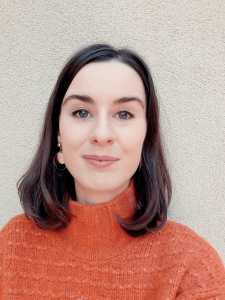
Clíona’s research is centred on representations of memory, trauma, testimony, witnessing and the imagination in contemporary writing by daughters and granddaughters of harkis, Algerian auxiliary soldiers enlisted in the French army during the Algerian War of Independence (1954-1962).
With the assistance of her mentor, Prof. Phil Dine (School of Languages, Literatures, and Cultures), Clíona is currently preparing a monograph publication based on her PhD research, which is provisionally titled Reconstructive Memory Work: Trauma, Witnessing and the Imagination in Writing by Female Descendants of Harkis.
Bio:
Clíona completed her PhD at the National University of Ireland, Galway, in 2018, as an Irish Research Council doctoral scholar under the joint supervision of Prof Philip Dine and Dr Máire Áine Ní Mhainnín.
Contact info:
Email: cliona.hensey@nuigalway.ie
Dr. Andrea Ciribuco
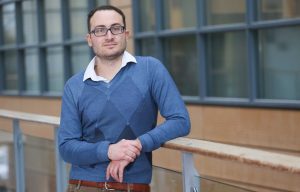
Project:
Dr. Andrea Ciribuco received NUIG’s first Marie Skłodowska-Curie Actions COFUND Collaborative Research Fellowships for a Responsive and Innovative Europe (CAROLINE) with the Irish Research Council in 2017 under the mentorship of Dr. Anne O’Connor, School of Languages, Literatures, and Cultures.
Dr. Ciribuco’s project – LINCS (Language Interaction and New Communities in a multilingual Society) – – is a project about language, the migrant experience, and cultural identity.
Bio:
Dr. Ciribuco spent two of the three years of the fellowship in the field, working with an Italian NGO, Tamat. The goal was to achieve a better understanding of the links between language, cultural background, and how individuals present themselves in a new culture. This knowledge will be used to inform and promote language practices and policies that will ultimately result in more inclusive societies.
In this current year of the project, Dr. Ciribuco will use the knowledge acquired during these two years of field work to create collaborations and exchanges of knowledge with Irish organizations.
The project will interest NGOs, local and European institutions as well as scholars, creating awareness of the ways in which we can remove linguistic obstacles to communication in a multicultural, multilingual Europe.
Contact Info:
Email: andrea.ciribuco@nuigalway.ie
Dr. Kieran Fitzpatrick
Research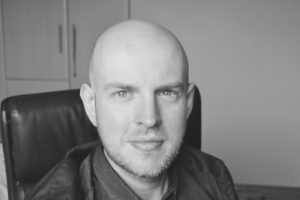
Between roughly 1880 and 1950, the way in which scientific medicine conceived of and treated cancer went through a series of seismic changes, changes that have influenced the structure and perceptions of cancer medicine into the twenty-first century. An important figure in contributing to these changes was Peter Freyer, born near Clifden, Connemara, a graduate of the then Queen’s College Galway, and later one of the foremost prostate specialists in the world. My work at the Moore Institute seeks to use Freyer’s remaining archive, which is extensive and held at the University’s Special Collections, to provide a history of the extent to which, how, and why cancer medicine changed in this period, and what those changes meant for the practice of medicine not just in Britain and Ireland, but further afield, too.
Bio:
Dr Kieran Fitzpatrick is currently the NUI’s post-doctoral Research Fellow in the Humanities for 2018-2020. Prior to his starting in this role, he was a post-doctoral research assistant at St John’s College, Oxford, which was also the location for his doctoral research that was completed with the assistance of the Wellcome Trust between 2013 and 2016. His initial training as a historian was undertaken at the University of Limerick (2007-2011) and NUI Galway (2011-2012).
Contact Info:
Email: kieran.fitzpatrick@nuigalway.ie
Dr. Bronagh Ann McShane
National University of Ireland Post-Doctoral Fellow in the Humanities
Project: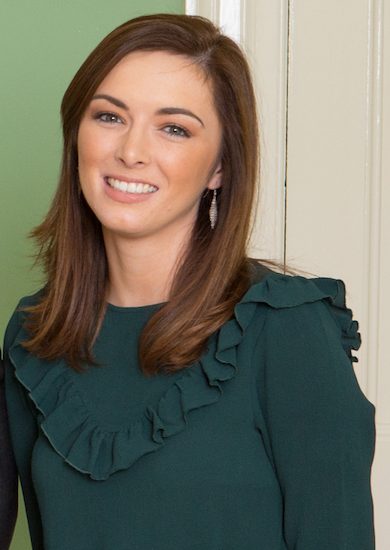
My project will provide a comprehensive, long-term study of the experiences and activities of Irish women religious from 1530 down to the mid-eighteenth century, a period of tumultuous religious change and upheaval. The suppression of religious houses in Ireland during the 1530s and 1540s marked an abrupt end to a formal way of religious life, which traced its origins back to the early Christian Church. While we know a good deal about the experiences of Irish male religious in the aftermath of the monastic suppression campaigns, and about women religious in England and Europe, by contrast the Irish female experience has been largely overlooked in the historiography of early modern Ireland and European female monasticism. My project will address that lacuna in existing scholarship by examining the ways in which Irish women religious negotiated their survival in the aftermath of the religious reforms of the 1530s and 1540s down to the mid-eighteenth century.
Bio:
Bronagh Ann McShane is a social historian specialising in the history of women, religion and confessionalisation in early modern Ireland and Europe. She completed her PhD (IRC-funded) at Maynooth University in 2015. She has published articles on aspects of her research in British Catholic History and Archivium Hibernicum and is contributing to a forthcoming collection on New Directions in Early Modern Irish History (contracted with Routledge). Between 2015 and 2018 Bronagh was employed as a postdoctoral researcher on the project ‘RECIRC: The Reception and Circulation of Early Modern Women’s Writing, 1550-1700’, directed by Professor Marie-Louise Coolahan and funded by the ERC.
Contact Info:
Email: Bronagh.mcshane@nuigalway.ie
Twitter: @BA_McShane
Dr. Emma Creedon
IRC Government of Ireland Postdoctoral Fellow
Project:
This project is focusing on the role of physical disability in twentieth and twenty-first century Irish drama. Considering specific stagings of the disabled body, it is investigating how the convention of “cripping up”, an industry term describing the practice of an able-bodied actor playing a disabled character, can perpetuate stereotypes and contribute to the marginalisation of those with physical disability in Irish culture.
Twentieth century and contemporary Irish drama contain numerous examples of physical disability being performed by able-bodied actors. From the Blind Man in W.B. Yeats’ On Baile’s Strand (1904), to Beckett’s dramatic images of disability and bodily fragmentation, to “Cripple Billy” in Martin McDonagh’s The Cripple of Inishmaan (1997), there is an Irish dramatic tradition of identifying disabled characters by their physical impairment. Furthermore, disability is often employed as a synecdoche for a thwarted morality (historical examples include the hunchback in Dion Boucicault’s The Colleen Bawn (1860)) or blindness as an allegory for prophecy. However, there are few examples in Ireland, and indeed internationally, of theatres sourcing disabled actors to play these roles. By “cripping up,” an actor demonstrates his/her performative virtuosity, rather than committing to accurate representations of reality. The result is the potential degradation of the disabled body, a stylised performance evoking vaudevillian conventions; performance thus engenders belief in stereotype. This has serious implications regarding preconceptions about normalcy. Irish drama will be examined as a case study and will be contextualised within international debates about corporeality, reconstructive surgery, bodily memory, prosthesis, phenomenology, and theories of the posthuman.
Contact Info:
Dr Emma Creedon
IRC Government of Ireland Postdoctoral Fellow
Moore Institute for Research in the Humanities and Social Studies,
Hardiman Research Building,
National University of Ireland, Galway.
Email: emma.creedon@icloud.com
Dr. Felicity Maxwell
Irish Research Council Government of Ireland Postdoctoral Fellow
Project: 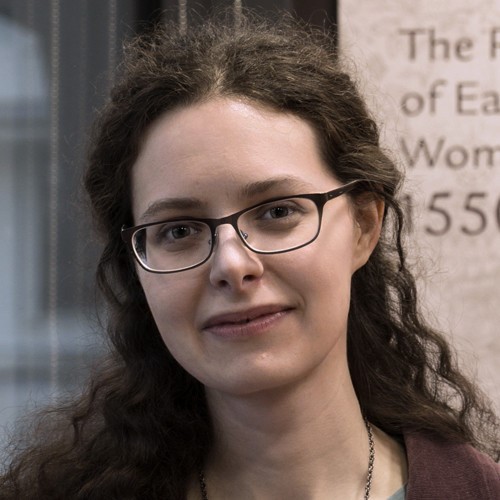
My current project is to write the first-ever monograph about the seventeenth-century Anglo-Irish thinker and letter writer Dorothy Moore. Unusually for a woman at that time, Moore participated in scholarly networks and used correspondence with other members of the Hartlib Circle and of the wider European Republic of Letters as the means to develop and disseminate her ideas on a number of challenging topics: how to improve women’s education; how to increase women’s involvement in the public life of Protestant societies; the purposes of Christian singleness and marriage; and religious politics in Britain and the Netherlands. Through close readings of Moore’s surviving correspondence in English, French, and Latin and through visualisations of her involvement and reception within two interconnected intellectual networks, the monograph will offer an overarching interpretation of Moore’s unique contributions to the Protestant Republic of Letters and will establish her importance to the fields of Irish and British women’s writing and women’s history, within the wider context of transnational Protestant intellectual culture.
Bio:
Originally from Ottawa, Canada, Felicity came to Galway in September 2014 as a postdoctoral researcher on the project ‘RECIRC: The Reception and Circulation of Early Modern Women’s Writing, 1550-1700’, directed by Professor Marie-Louise Coolahan and funded by the ERC. Felicity obtained her PhD in English at the University of Glasgow in June 2014 with the support of a Doctoral Fellowship from the Social Sciences and Humanities Research Council of Canada. As a doctoral researcher affiliated with the ‘Bess of Hardwick’s Letters’ project, directed by Dr Alison Wiggins, Felicity wrote her thesis on the correspondence of Bess of Hardwick’s servants, c. 1550-1590. For details of Felicity’s (and RECIRC colleagues’) recent publications and presentations, see http://recirc.nuigalway.ie/presentations-and-publications.
Contact Info:
Email: felicity.maxwell@nuigalway.ie
Twitter: @flmaxwell (intermittently!)
Dr. José Brownrigg-Gleeson Martínez
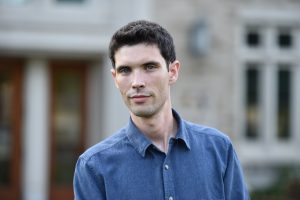
Project
IRC Government of Ireland Postdoctoral Fellow
‘The global Irish and the re-imagining of Latin America during the Age of Revolutions (1776–1848)’
My research project examines the neglected role of Latin America in the development of Irish perceptions of imperialism, decolonization and modernity during the Age of Revolutions (1776–1848). The project looks beyond the scholarship concerning the place of Ireland within the British Empire to analyse the rich body of textual images of Latin America created and circulated amongst Irish communities —both at home and abroad— during the period. The research first charts Irish images of the Iberian New World in the late 18th century. It then traces Irish interpretations of the challenges faced by Latin America during the struggle for independence and the formation of the new nation-states, in the form of civil wars, economic crises and racial tensions. Finally, it studies how these views were assimilated and integrated into discussions about the Irish experience of empire and emigration from the passing of the Act of Union to Young Ireland’s abortive 1848 rebellion. Additionally, the project aspires to encourage discussion on the position of Latin America in the expanding environment of Irish Studies.
Bio:
José is a historian of Latin America and Ireland in the 18th and 19th centuries. He holds a PhD in History from the University of Salamanca (Spain), where he was a founding member of Indusal, the university’s research group on Latin American independence. Together with exploring the intellectual and political dimensions of Irish involvement in the revolutionary processes of the Hispanic world, he has published on other aspects of transnational history, such as Irish migration, mobility and multilingualism in Spanish America during the late colonial period, and Hispano-Irish relations. This research has received the generous support of various institutions, such as the Spanish Ministry of Science and Innovation, and Harvard University’s International Seminar on the History of the Atlantic World. José was the 2017–18 National Endowment for the Humanities (NEH) Fellow at the University of Notre Dame’s Keough-Naughton Institute for Irish Studies (USA), and previously worked as an associate lecturer at the University of Winchester (UK), and as a research assistant at NUI Galway on the project ‘Changing Words/Changing Worlds: Translation in Nineteenth-Century Ireland’, directed by Dr. Anne O’Connor and funded by the IRC. José is also active in the field of translation and has translated several books.
Contact Info:
Email: josegleeson@gmail.com
Dr. Ciaran McDonough
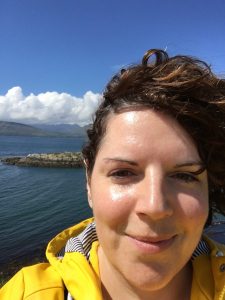
Project: During this fellowship, I will work on a book chapter for a collected volume of essays titled Hardiman and After: Galway Culture and Society since 1820. My contribution will cover a biography of James Hardiman, the first librarian of NUI Galway (then Queen’s College, Galway) and his works in their nineteenth-century antiquarian context. James Hardiman (1782-1855) was a leading intellectual of his day, a scholar of music, poetry, folklore and history. In 1820, he published the groundbreaking History of the Town and County of the Town of Galway. On the establishment of the university in Galway in 1849, he was appointed its Librarian, a post he held for the remainder of his life. An important new book, Hardiman and After: Galway Culture and Society, 1820-2020 (edited by John Cunningham and Ciaran McDonough) marks the bicentenary of the publication of Hardiman’s History, in conjunction with Galway’s historic year as European Capital of Culture.
Bio:
Ciaran McDonough was until recently a Postdoctoral Researcher in History at the National University of Ireland, Galway. She was awarded a PhD in 2017 by NUIG for her thesis on nineteenth-century Irish antiquarian cultures. She has published articles on Irish antiquarianism and the Irish language in the nineteenth century in Studi Irlandesi, Studia Celtica Fennica, and Landscapes. She is the co-editor of the forthcoming collection of essays (with John Cunningham),
Hardiman and after: Galway Culture and Society, 1820-2020.
Contact info:
Dr Margaret Scull 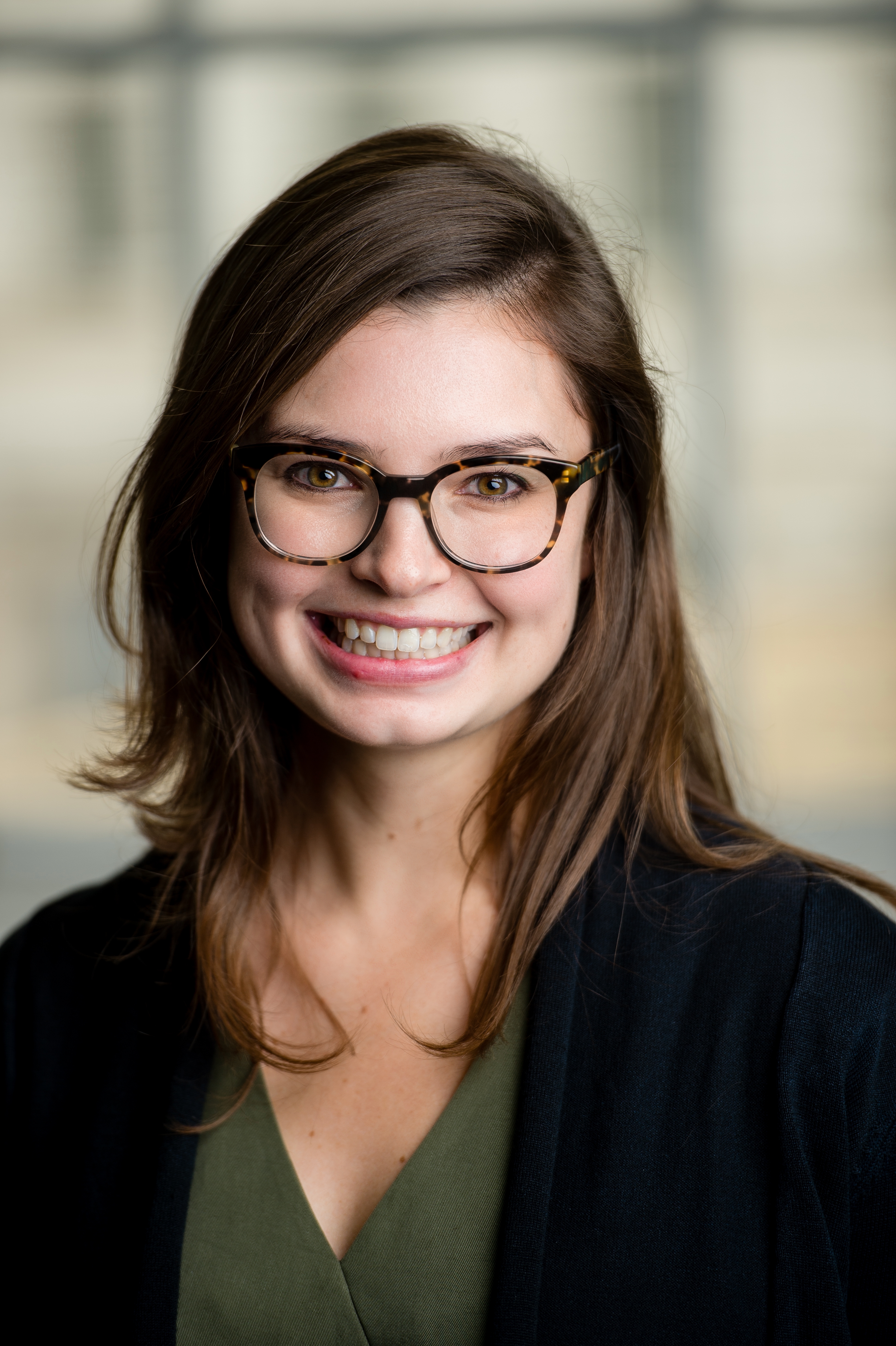
Project Title: ‘Death be not proud’: Funerals as Protest during the Northern Ireland ‘Troubles’
Dr Maggie Scull is Irish Research Council postdoctoral fellow. Before joining the Moore Institute she was a Teaching Fellow in Modern British and Irish History at King’s College London. Her interdisciplinary research explores the relationship religion and politics in the contemporary period. She examines the ‘soft power’ influence religious leaders still possessed in British and Irish politics after the Second World War. Her current project examines the role of funerals throughout the Northern Irish ‘Troubles’. In addition, she is working on a monograph exploring the Catholic Church’s response to the conflict in Northern Ireland, 1968-98. In 2016, she co-organised the ‘Rethinking the 1980/81 Hunger Strikes’ Project with Dr Alison Garden, which examined the legacy of the strikes for British and Irish politics and culture. Earlier this year she co-organised ‘Agreement 20’ project, a two-day symposium at the Irish World Heritage Centre in Manchester marking the twentieth anniversary of the Belfast/Good Friday Agreement.
Contact Info:
Email: margaret.scull@nuigalway.ie
RECIRC Project
 RECIRC: The Reception and Circulation of Early Modern Women’s Writing, 1550-1700 is an ERC-funded project led by Marie-Louise Coolahan, involving seven postdoctoral researchers and two doctoral students. The project is producing a large-scale, quantitative analysis of the reception and circulation of women’s writing from 1550 to 1700. The results will enable analysis of how texts, ideas and reputations gained traction in the early modern period. The focus includes writers who were read in Ireland and Britain as well as women born and resident in Anglophone countries; the subject of study is not limited to authors who wrote in English. RECIRC is organised in four interlocking work packages: transnational religious networks; the international republic of letters; the manuscript miscellany; and book/manuscript ownership.
RECIRC: The Reception and Circulation of Early Modern Women’s Writing, 1550-1700 is an ERC-funded project led by Marie-Louise Coolahan, involving seven postdoctoral researchers and two doctoral students. The project is producing a large-scale, quantitative analysis of the reception and circulation of women’s writing from 1550 to 1700. The results will enable analysis of how texts, ideas and reputations gained traction in the early modern period. The focus includes writers who were read in Ireland and Britain as well as women born and resident in Anglophone countries; the subject of study is not limited to authors who wrote in English. RECIRC is organised in four interlocking work packages: transnational religious networks; the international republic of letters; the manuscript miscellany; and book/manuscript ownership.
Dr. Alice Colombo
The transnational mobility of cheap print: British chapbooks in Italy, 1800-1850
My project compares British and Italian repertoires of popular publishing to determine how and to what extent translation is responsible for the similarities and differences that exist between them. Specifically, it tracks and analyses translations of British chapbooks published in nineteenth-century Italy, mainly between 1800 and 1850. The analysis of the Italian versions and their sources is carried out using an interdisciplinary approach that integrates translation studies with theories of textuality and the histories of the book and of reading. While contributing to translation history and to the bibliographical and historiographical survey of cheap print, my research enhances our awareness of the transnational dimension of popular publishing. This sheds new light on the processes that led to the formation of a shared European heritage of popular culture.
Dr. Alice Colombo
Marie Skłodowska-Curie Postdoctoral Fellow
Moore Institute, NUI Galway
Email: alice.colombo@nuigalway.ie
Twitter: https://twitter.com/alicecolombo8
Dr. Ciarán McCabe
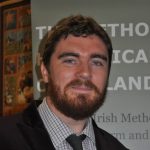
Project:
I am currently in receipt of a one-year Irish Research Council Postdoctoral Fellowship, which is focused on publishing a monograph arising from my doctoral research. My research examines the practices of begging and alms-giving in pre-Famine Ireland ( c. 1815-45). Section I considers the challenges in defining and measuring beggary in this period, while also analysing the varied ways in which beggars were perceived – as deviant, benign or just simply ubiquitous. Section II explores the roles of lay charities and civil parish vestries in responding to begging and beggars; in the instance of charities, I am undertaking a case study of the mendicity society movement which spread throughout Ireland and Britain in the first half of the nineteenth century. Given the centrality of religion in the practice of charity and philanthropy in this period, Section III analyses how Roman Catholics and Protestants (of different denominations) viewed and negotiated begging and alms-giving, and to what extent can differences or similarities be attributed to confessional affiliation.
Contact Details:
CIARAN.MCCABE@nuigalway.ie
http://iaph.ie/members/ciaran_mccabe/
Dr. Conor McNamara
 Dr. Conor McNamara is the 1916 Scholar in Residence for 2016 at the Moore Institute. This year he has spoken at over seventy academic conferences, community events and schools on the topic of the Easter Rebellion. He is the co-curator of the University’s flagship centenary exhibition, A College in War & Revolution 1913-19; The University Experience, currently on display in the Hardiman Library. He is currently compiling a directory of archives covering the revolutionary period in the west of Ireland and is the author of numerous journal articles and book chapters on the Revolutionary period in the west.
Dr. Conor McNamara is the 1916 Scholar in Residence for 2016 at the Moore Institute. This year he has spoken at over seventy academic conferences, community events and schools on the topic of the Easter Rebellion. He is the co-curator of the University’s flagship centenary exhibition, A College in War & Revolution 1913-19; The University Experience, currently on display in the Hardiman Library. He is currently compiling a directory of archives covering the revolutionary period in the west of Ireland and is the author of numerous journal articles and book chapters on the Revolutionary period in the west.
Dr. Conor McNamara
NUI Galway, 1916 Scholar in Residence, 2016
Author: Easter 1916: A New Illustrated History (2015)
Editor: The West of Ireland: New Perspectives on the Nineteenth Century (2011)
Dr Darrell Jones
Irish Research Council Government of Ireland Postdoctoral Fellow
Darrell Jones is a graduate of the University of Oxford and Trinity College Dublin. He has a broad range of research and teaching interests in seventeenth- and eighteenth-century literary, cultural, and intellectual history. Having completed his PhD in 2014, Darrell joined the Moore Institute two years later in order to begin a postdoctoral project entitled ‘The Early Modern Essay and the New Science’. The project explores the complex relationships among literary form, experimental philosophy, and intellectual discourse in late seventeenth- and early eighteenth-century Britain and Ireland. Work currently in progress includes a study of the composition and early reception of John Locke’s An Essay concerning Human Understanding (1690), and a chapter on Irish responses to the Molyneux problem for the forthcoming volume Irish Literature in Transition 1700–1780 (Cambridge University Press, 2018).
Dr Darrell Jones
darrell.jones@nuigalway.ie
Dr. David Clare

The Hibernicising of the Anglo-Irish Playwright, 1904-2013
This project aims to demonstrate that, since the opening of the Abbey Theatre in 1904, Irish theatre-makers have frequently imposed Irish elements onto the English-set plays written by the great, London-based, Irish Protestant playwrights.
As discerning critics have long recognised, George Farquhar, Oliver Goldsmith, R.B. Sheridan, Oscar Wilde, and Bernard Shaw frequently signalled their Irish origins in their plays. Often cited are their satirical portraits of the English, their subversive use of Stage Irishmen, and their inclusion of Irish topical references. In the decades since the Revival, however, Irish theatre-makers have not been satisfied with such coded expressions of Irishness. As an expression of their own cultural nationalism, theatre-makers have made the Irish characters in these plays more central; they have had certain English or continental European characters played with Irish accents; they have re-set plays in Ireland; and they have even included the Irish playwrights in the on-stage action.
This tendency to crudely “Hibernicise” these plays reflects the discomfort that Irish theatre practitioners feel with the Irish-British cultural hybridity of these playwrights. Being from Church of Ireland backgrounds, these writers self-identified as Irish and even possessed what Elizabeth Bowen referred to as the “subtle anti-Englishness” of the “Anglo-Irish”; however, they were also aware that they were, on some level, British (in the same way that a Scottish, Welsh, or Northern Irish person might consider themselves British today). I will argue that, in the wake of the Good Friday agreement (and for historical accuracy’s sake), critics and theatre-makers must understand and analyse the Irish-British hybridity of Irish Protestant writers, including those covered in this project.
Dr. David Clare is an Irish Research Council-funded postdoctoral research fellow based in the Moore Institute at the National University of Ireland, Galway. His first book, Bernard Shaw’s Irish Outlook, was published by Palgrave Macmillan in November 2015, and his journal articles on important figures from Irish literature and drama have appeared (or will soon appear) in the Irish Studies Review, the New Hibernia Review, the Irish University Review, Studies: An Irish Quarterly Review, the Irish Review, Studies in Burke and His Time, and Emerging Perspectives.
Email: david.clare@nuigalway.ie
Website: https://dahphd.academia.edu/DavidClare
Dr. Debora Biancheri
Representing difference: Issues of identity and cultural encounters in the Italian translations of Seamus Heaney
 Dr. Biancheri’s research area is literary translation, and her main objective is to investigate to what degree source texts might be transformed by manifold cultural and social aspects inherent to the context of reception that also figure into the specific interpretive inscription of a translation. The focus of her project funded by the Irish Research Council is the critical analysis on the poetry of Nobel Laureate Seamus Heaney, and its reception in Italy in particular. The goal is to demonstrate that given target texts only corresponds to one interpretation of their sources, and to establish how this interpretation is influenced by factors transcending linguistic constraints. It is questioned, for instance, to what extent translated texts might challenge, or else conform to a given international construction of Irish and Northern Irish identity. This research, by way of a thorough engagement with literary texts in translation, contributes to the understanding of the cultural dialogue between European countries. The work resulting from this research provides a relevant intervention to topical debates in the area of translation studies, as well as to the ongoing discussion about Heaney’s poetic legacy in Ireland and abroad.
Dr. Biancheri’s research area is literary translation, and her main objective is to investigate to what degree source texts might be transformed by manifold cultural and social aspects inherent to the context of reception that also figure into the specific interpretive inscription of a translation. The focus of her project funded by the Irish Research Council is the critical analysis on the poetry of Nobel Laureate Seamus Heaney, and its reception in Italy in particular. The goal is to demonstrate that given target texts only corresponds to one interpretation of their sources, and to establish how this interpretation is influenced by factors transcending linguistic constraints. It is questioned, for instance, to what extent translated texts might challenge, or else conform to a given international construction of Irish and Northern Irish identity. This research, by way of a thorough engagement with literary texts in translation, contributes to the understanding of the cultural dialogue between European countries. The work resulting from this research provides a relevant intervention to topical debates in the area of translation studies, as well as to the ongoing discussion about Heaney’s poetic legacy in Ireland and abroad.
Debora Biancheri, MA, PhD
School of Languages Literatures and Cultures, NUI Galway
Ph: +353 086 7318469
E-mail: debora.biancheri@nuigalway.ie/ tobairvree@gmail.com
Dr. Deirdre Ní Chonghaile
NUI Postdoctoral Fellow in Irish/Celtic Studies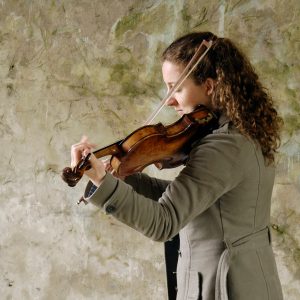
Biography
Deirdre Ní Chonghaile is a graduate of the University of Oxford and University College Cork. She first came to the Moore Institute in 2012 as an IRC Postdoctoral Fellow. Thereafter, she was a Research Associate with the Digital Culture Initiative and she now holds a NUI Postdoctoral Fellowship in Irish/Celtic Studies. Prior to coming to Galway, she was NEH Keough Fellow at the University of Notre Dame and Alan Lomax Fellow in Folklife Studies at the John W. Kluge Center at the Library of Congress in Washington D.C. She is currently completing a monograph about music-collecting in Ireland.
Project
My work focuses on voices, contemporary and historical, especially those that have been marginalized, and on what they have to say or sing. With the NUI Post-Doctoral Fellowship in Irish/Celtic Studies, I hope to complete my historiographical book on music-collecting in Ireland and also to expand my research into Irish cultural history of the nineteenth and twentieth centuries by beginning work on the Rev. Daniel J. Murphy manuscripts at NUI Galway. Transcribed in Pennsylvania in 1884-1924, this abundant and untapped collection of Irish-language song and folklore documents the pre-Famine memory of Ireland as performed and preserved by scores of emigrants. As the Rev. Murphy collection pre-empts the work of the Irish Folklore Commission by two generations, the chance to unlock its potential presents an exciting opportunity to diversify and enrich the evidentiary base from which scholars currently draw. Developing the collection into an open-access resource promises to inspire a major re-assessment of Irish and Irish-American history, focusing especially on language and performance practices, migration, assimilation, and identity in a global context. It also promises to generate a new source for genealogy, music repertoire, and to repatriate cultural inheritances to stakeholders on both sides of the Atlantic.
Photo: Anne Burke
Prof. Erin McCarthy 
Title: Postdoctoral Researcher, “RECIRC: The Reception and Circulation of Early Modern Women’s Writing, 1550–1700″
Research:
RECIRC aims to provide the first quantitative account of the reception and circulation of women’s writing. My research for the project focuses specifically on the transmission of women’s writing in manuscript miscellanies. This research will culminate in a co-authored monograph with Marie-Louise Coolahan and Sajed Chowdhury, tentatively titled ‘The Reception and Circulation of Early Modern Women’s Writing in Manuscript Miscellanies, 1550–1700’.
Biography:
Erin A. McCarthy is a literary historian specializing in early modern British literature and the histories of material texts and reading. She is currently a postdoctoral researcher on the European Research Council-funded project “RECIRC: The Reception and Circulation of Early Modern Women’s Writing, 1550–1700” at the National University of Ireland, Galway. Beginning in February 2019, she will be Lecturer in Digital Humanities at the University of Newcastle (Australia). She has published articles in the John Donne Journal, Studies in English Literature, and the Review of English Studies. Her first book, Doubtful Readers: Print, Poetry, and the Reading Public in Early Modern England is under contract with Oxford University Press.
Dr Jackie Ui Chionna
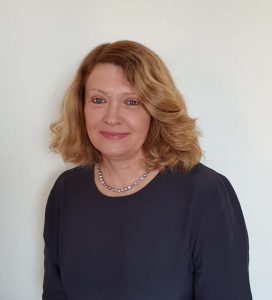
September 2018-February 2019 – Dr. Uí Chionna is currently preparing a book entitled “An Oral History of University College Galway, 1930-1980: A University in Living Memory” for publication. The book is based on interviews conducted as part of an oral history project initiated by the university management team at NUI Galway in 2007-2009. The project set out to establish what it was like to study, teach or work at what was then University College Galway from 1930-1980. the book will be published by Four Courts Press, Dublin, in Autumn 2019.
Dr. Laura Branch
Marie Skłodowska-Curie Intra-European Fellow
Networks of Trade and Religion in Richard Hakluyt’s Principal Navigations (1589, 1598-1600).
This project investigates the relationship between trade and religion in Richard Hakluyt’s Principal Navigations (1589, 1598-1600), a vast repository of documents concerned with early modern commercial and colonial expansion. The study has two central objectives: the first is to introduce a more sophisticated understanding of religious identity into the discussion of Hakluyt and his sources. Traditionally, scholars have labelled Hakluyt a staunch Protestant, but I argue that his anti-Catholic rhetoric simply reflected state policy, while the extensive material he included in his collection features an important array of interactions between traders of different faiths, suggesting a more diverse, flexible and pragmatic world of commerce. The second objective is to re-establish the centrality of England’s long-distance trading empire to Hakluyt’s vision by considering trading missions to Russia, Persia, and the Levant. Scholars have devoted disproportionate attention to the material relating to the Americas despite the fact that it comprises just one third of the text. This research takes a nuanced approach to cross-confessional trade by considering not only how Protestants traded with Muslims and Orthodox Christians, but also how English Catholics lived and worked alongside English Protestants and how far their attitudes differed towards other faiths. The project is interdisciplinary in engaging with aspects of early modern trade, religion, culture and literature; and blends methodologies of textual analysis with prosopography and social network theory.
Email: laura.branch@nuigalway.ie
Web: https://nuigalway.academia.edu/laurabranch
Twitter: www.twitter.com/hypocras
Dr. Nahuel Sznajderhaus
Irish Research Council Postdoctoral Fellow Project title:
‘A Realist Approach to Quantum Mechanics and Inter-theory Relations in Physical Theories: the Closed Theories View’.
Current research: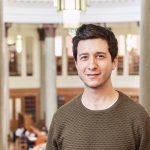
In this IRC Fellowship Nahuel will articulate a philosophical approach to the interpretation of quantum mechanics, with particular focus on the relationship between classical mechanics and quantum mechanics. By contrast with classical mechanics, it is still unclear what quantum mechanics is about. Nevertheless, the tradition considers that classical mechanics can be recovered “in the limit” from quantum mechanics. And yet there are notorious difficulties in describing how that limit works. His PhD thesis examined these issues, criticised the traditional framework and motivated an alternative view based on the pluralist view of Werner Heisenberg, which he aims to develop further during this project.
Bio:
After completing his studies in physics at the University of Buenos Aires in Argentina, Nahuel obtained a Darwin Trust of Edinburgh scholarship to pursue a PhD in philosophy. He was awarded PhD at the University of Leeds in March 2017 with the thesis “Realism and Intertheory Relationships: Interstructuralism, Closed Theories and the Quantum-Classical Limit”. From March through August 2017 Nahuel conducted research as a short-term post-doctoral researcher at the Leeds Humanities Research Institute. He has also worked extensively in education outreach in England and in Argentina.
Publications:
“Decoherence and intertheory relations in quantum realism”. Metatheoria UNTREF, Argentina, www.metatheoria.com.ar. 2017. In press. “On the received realist view of quantum mechanics”. Cadernos de Historia e Filosofia da Ciencia, UNICAMP, Brazil, v.2, n.1, 2016. In press. “Current debates in the philosophy of quantum mechanics”. Cadernos de Historia e Filosofia da Ciencia, UNICAMP, Brazil, v.2, n.1, 2016. Co-authored with Jonas R. Becker Arenhart. In press.
email: nahuel.sznajderhaus@nuigalway.ie
Twitter: @N_Sznajderhaus URL: nsznaj.weebly.com
Dr. Niamh Wycherley
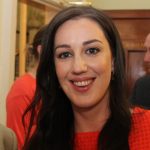
The Language of Relics in Medieval Ireland
NUI Postdoctoral Fellow in Irish/Celtic Studies
Project
This project will construct the first detailed analysis of the terminology and language relating to the cult of relics in early Ireland, from the fifth to the twelfth century. Despite the internationally recognised importance of the cult of relics there has been relatively little historical research undertaken on the cult of relics in Ireland. An obstacle to this research has been the bilingual nature of the early Irish sources, which has produced a large body of terms used to denote relics, deterring scholars. It is only through a detailed analysis of the specific terms used in these sources, by someone like myself, skilled in both Old Irish and Latin, that the nuances within the cult of relics can be revealed. Both Latin and vernacular terms for saints’ relics repay scrutiny. They are often less transparent than modern histories assume, and some Old Irish relic-terms reveal more than their Latin counterparts about prevailing religious customs.
Dr Niamh Wycherley
NUI Postdoctoral Fellow in Irish/Celtic Studies
niamh.wycherley@gmail.com
Dr. Regina Donlon
The Tuke Irish in Minnesota: a transnational analysis of assisted emigration to the American Midwest, 1880-1930.
Between 1882 and 1884 over 9,000 people from the Clifden, Oughterard, Belmullet and Newport Poor Law Unions left the west of Ireland as part of James Hack Tuke’s assisted emigration schemes. Of these, an estimated 800 emigrants settled in the US Federal State of Minnesota. Accordingly, this study considers the origins of an Irish emigrant community in the west of Ireland, discussed in tandem with the unique characteristics of their immigrant experience in the American Midwest. The project explores and chronicles the lives of Tuke’s assisted emigrants from counties Galway and Mayo and examines their experience through social, cultural, economic, political and religious lenses. This provides a narrative of the transnational nature of migration and its ability to forge global connections. Ultimately the study reveals some the challenges and opportunities faced by the Irish emigrants to the American Midwest during the late nineteenth and early twentieth centuries.
Regina Donlon,
Moore Institute,
Hardiman Building,
NUI Galway,
Galway.
Email: regina.donlon@nuigalway.ie
Telephone: 091 493903
Dr Thomas Leahy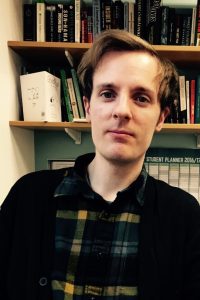
Irish Research Council Government of Ireland Postdoctoral Fellow
‘Memory beyond borders: dealing with the legacy of the Northern Ireland conflict in the Republic of Ireland, 1969 to 2016’.
Current research:
This research investigates the impact of the Northern Ireland conflict on the Republic of Ireland between 1969 and 2016. It considers four key questions: what impact has the Troubles had on Irish politics and society? what has been the current contribution of the Irish government towards dealing with the legacy of the Troubles? should any further efforts be made? what role can history play in dealing with the legacy of the Troubles in the Irish Republic? The research involves cross-referencing a range of sources, including original interview material provided by various political parties, victims groups, former paramilitary groups, and government departments in Ireland, Northern Ireland and the UK. The research seeks to engage with public debates and to inform Irish government ideas for dealing with the past in relation to the Northern Ireland conflict.
Bio:
Thomas was awarded his PhD in history from King’s College London in 2015. His PhD work that is currently under consideration for a book is entitled: ‘Informers, the Provisional Irish Republican Army and British counter-insurgency strategy during the Northern Ireland conflict, 1969-1998’. This research partly involved evaluating a unique range of interview material from all sides of the conflict. He has previously lectured at Cardiff University on the Northern Ireland conflict.
Publications: ‘The Influence of Informers and Agents on Provisional Irish Republican Army Military Strategy and British Counter-Insurgency Strategy, 1976–94’ in Twentieth Century British History, (2015), Vol.26, Issue 1, pp.122-146.

